8th Annual Australian Islamic Schooling Conference (AAISC8)
Islamic Schooling Renewal: A Focus on Assessment - Why, What and How We Assess in Australian Islamic Schools?
Islamic Schooling Renewal: A Focus on Assessment - Why, What and How We Assess in Australian Islamic Schools?
16 August - 17 August 2025
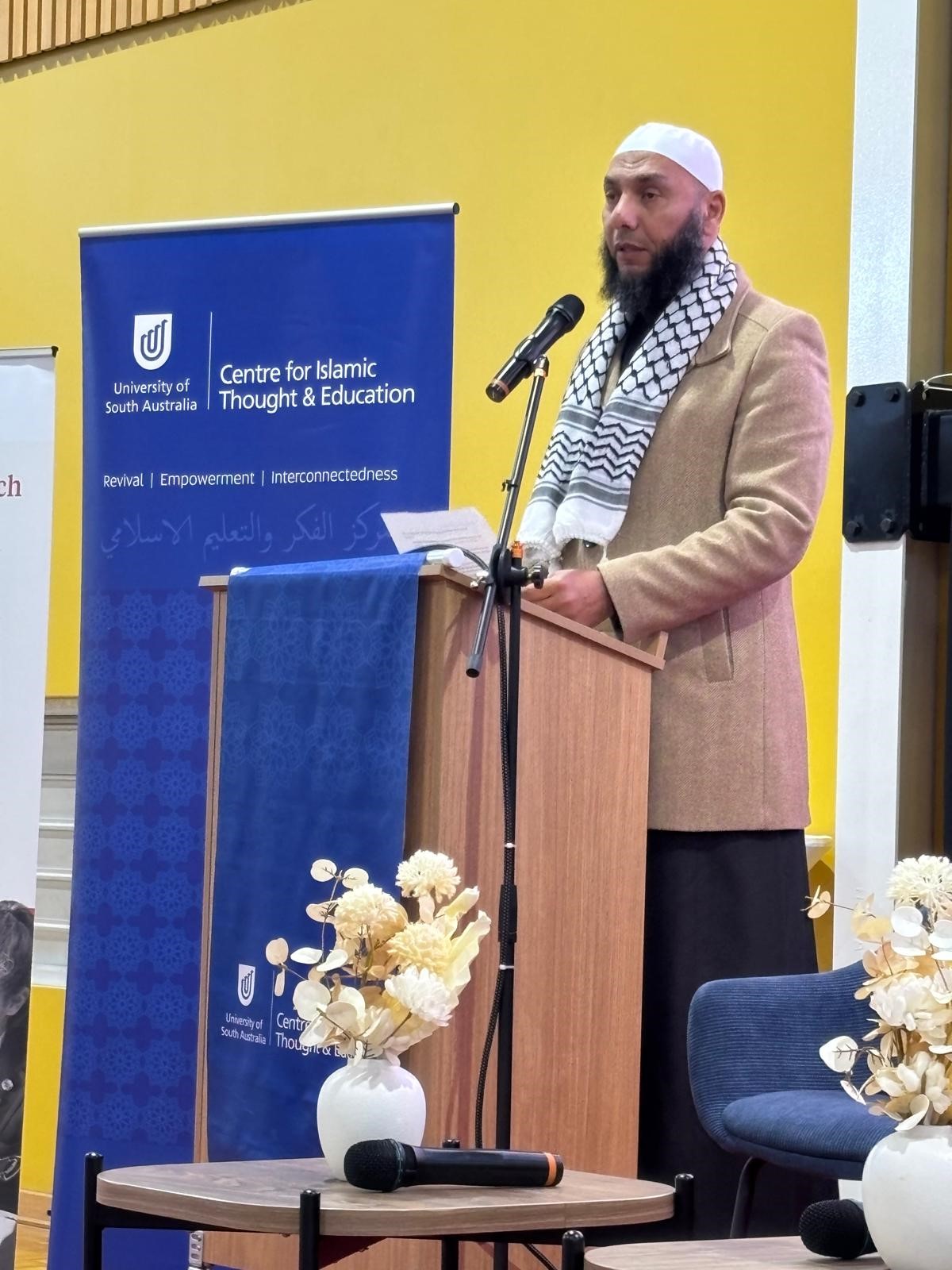





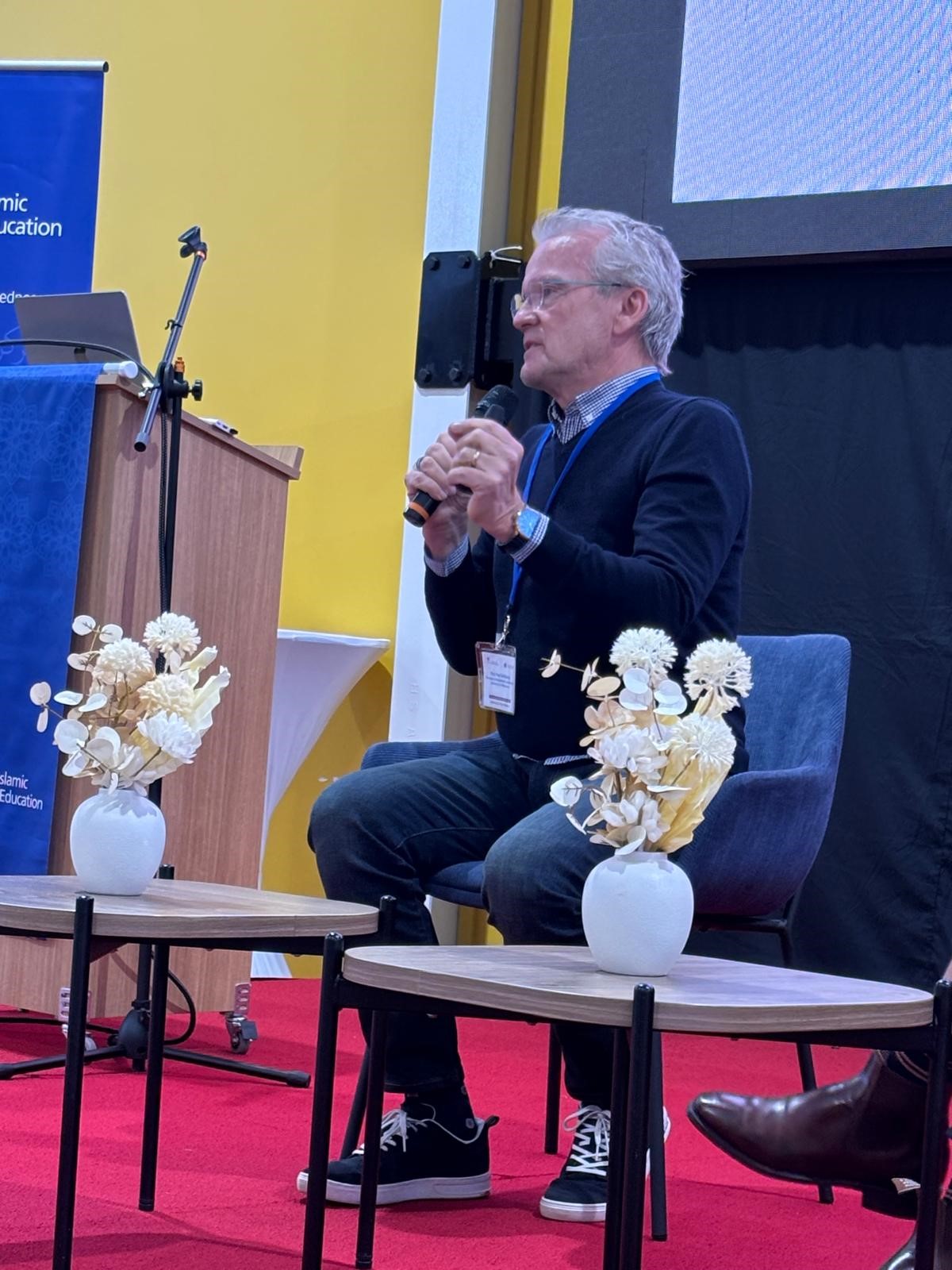


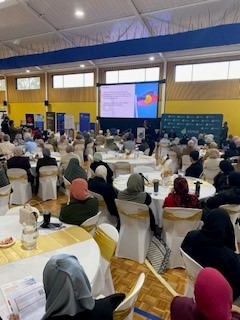







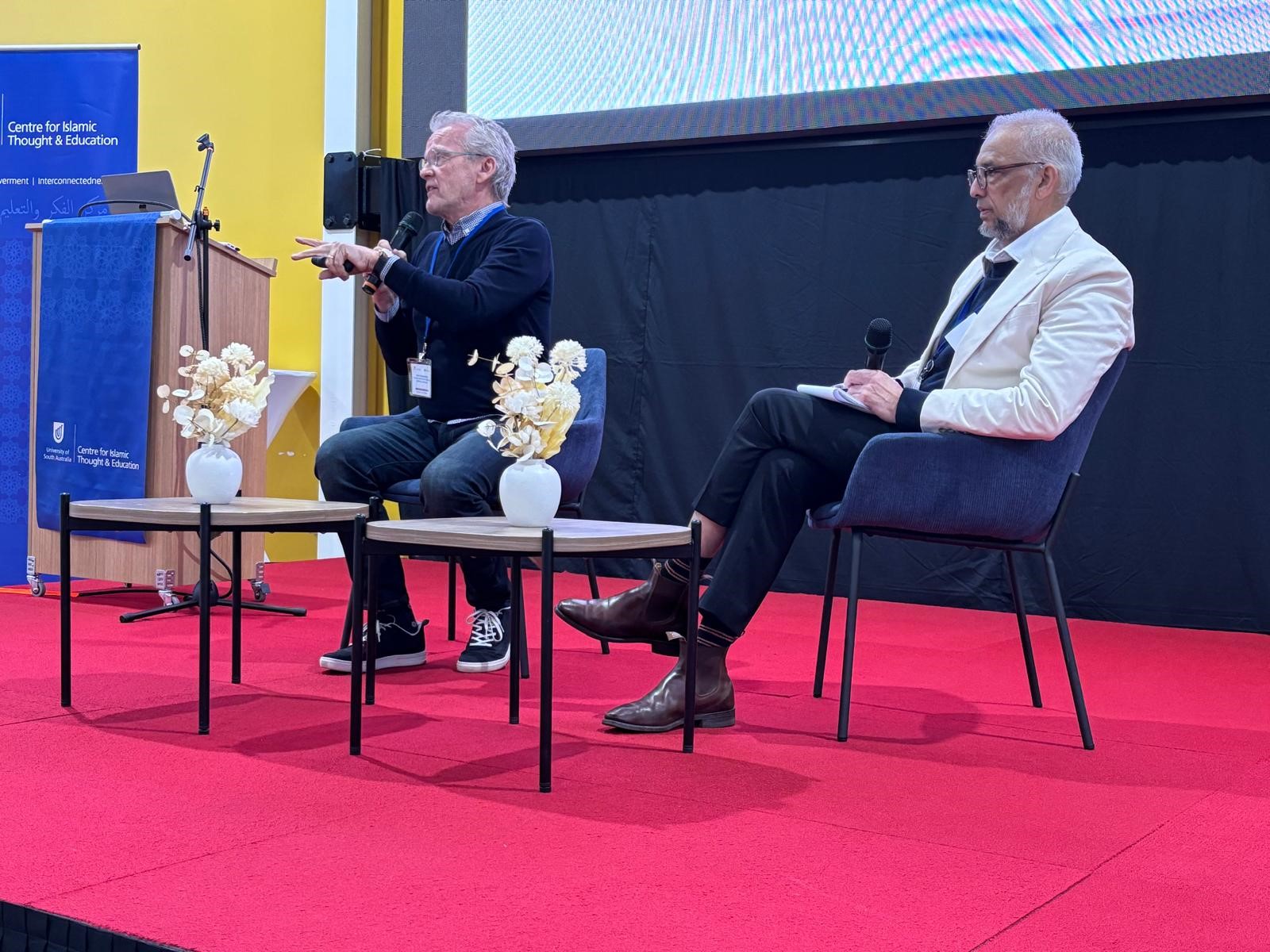






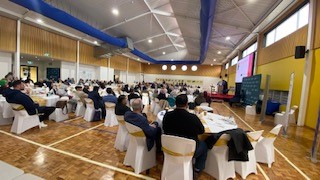




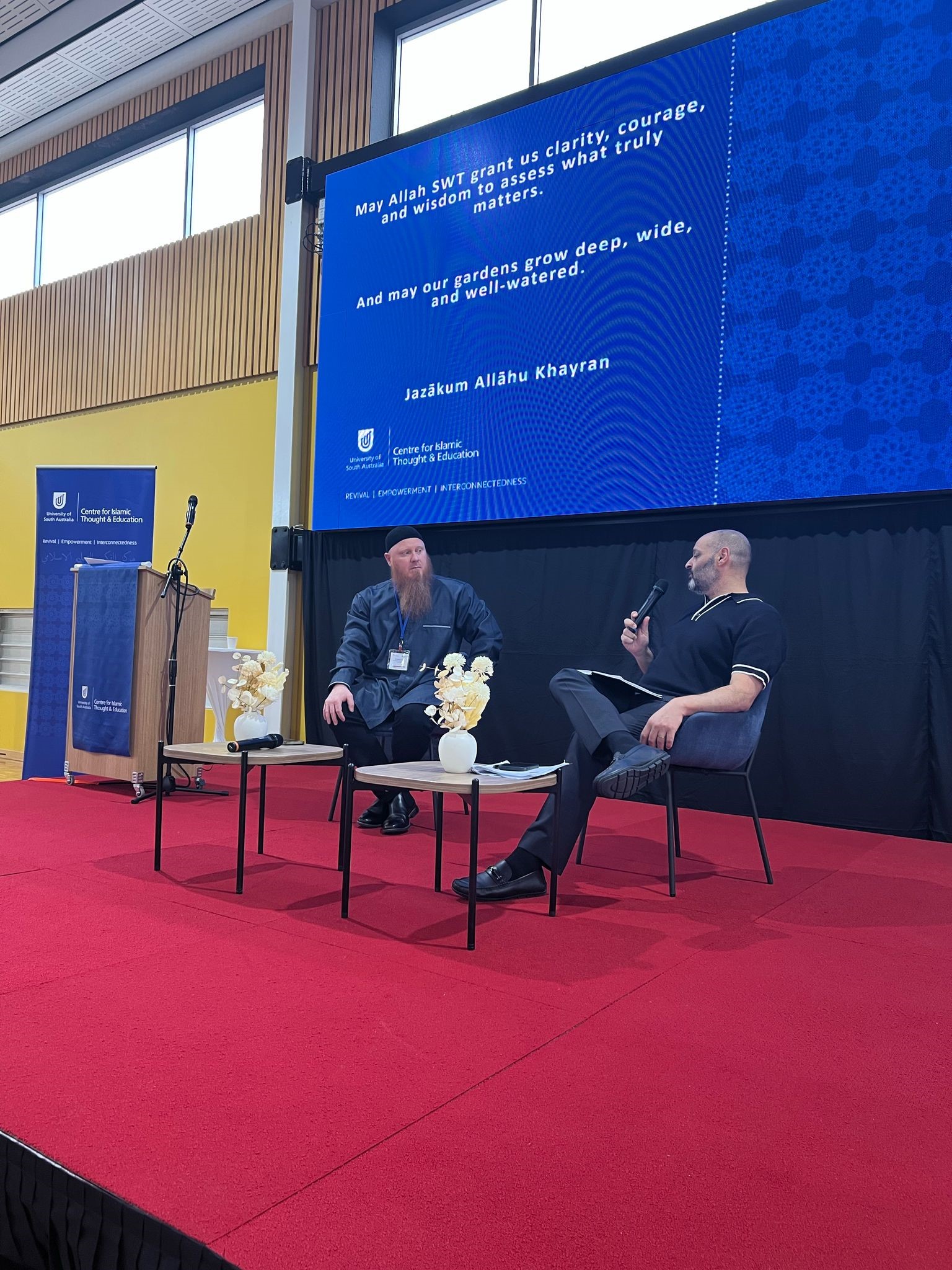
Australian Islamic Schools aspire to foster wholeness - spiritual, intellectual, physical, moral, ethical, imaginative, and social aptitudes. But pressures to perform academically create two challenges for our schools: a) standardised test scores unknowingly become the marker of success and b) assessing that which cannot be measured (e.g. morality and spirituality) is left open-ended. The conundrum is this: Australian Islamic Schools are undoubtedly graduating students with high academic performance but how do we measure impact on fostering wholeness? This year’s conference aspires to raise the difficult question we often don’t collectively get to explore: do we assess what matters most and if so, how?
This year’s conference extends our collective commitment to drawing from the Islamic Worldview to think about education in Australia anew. The focus on assessment will allow us to hone in on a critical area of our work in schools rarely problematised. Our aim is to push thinking and encourage renewed practice that holds true the very aspirations we have for Australian Islamic schooling.
Key themes of the conference include:

What if our obsession with standardised tests is costing us the very soul of education?
Internationally renowned education reformer Professor Pasi Sahlberg brings a bold and inspir
ing call to action for school leaders ready to rethink assessment and reclaim what matters most. With decades of experience across Finland, the World Bank, Harvard, and now Australia, Sahlberg will challenge us to move beyond the metrics, beyond the data, and beyond the test.
In this unmissable keynote, Prof. Sahlberg will:
For Islamic school educators committed to nurturing the whole child — spiritually, intellectually, emotionally, and morally — this keynote is a game-changer. It will deepen your resolve, expand your vision, and equip you to create learning cultures that reflect your highest values.
 What if assessment was not a process of judgment—but an act of witnessing?
What if assessment was not a process of judgment—but an act of witnessing?
In this deeply spiritual and thought-provoking keynote, Sr Elma Ruth Harder invites educators to reimagine assessment through the lens of Qur’anic worldview, sacred intention (niyyah), and purposeful endings (husn al-khātimah). Drawing from the wisdom of Islamic scholars such as al-Muḥāsibī, Ibn Furak, and al-Ghazālī, Sr Elma challenges us to see assessment as a spiritual responsibility—one that shapes not just what we measure, but who our students become.
Blending metaphors of tapestry weaving and garden cultivation, she will explore:
For Islamic educators seeking depth, beauty, and meaning in their practice, this keynote is a profound reminder of what it means to teach with Allah in mind—and assess with the End in sight.
 In Islamic schools across Australia, we live daily with the tension between what is measurable and what truly matters. As NAPLAN, ATAR, and compliance frameworks pull us outward, our divine purpose calls us inward, to something deeper, more enduring, and far more consequential.
In Islamic schools across Australia, we live daily with the tension between what is measurable and what truly matters. As NAPLAN, ATAR, and compliance frameworks pull us outward, our divine purpose calls us inward, to something deeper, more enduring, and far more consequential.
Dylan Chown, thought leader in Islamic Pedagogy and renewal (tajdīd), challenges us to see assessment not as a borrowed system to superficially Islamicise, but as the very frontier where meaningful, faith-centred transformation must begin.
Drawing on research from Australian schools and global networks, Dylan will:
For Dylan, reimagining assessment is not about abandoning accountability, but about anchoring it in what truly counts, preparing hearts and minds for the ultimate end, the ākhirah. It is about moving from isolated experiments to a shared ecosystem of purpose-driven assessment, rooted in our tradition yet responsive to the realities of today.
This is more than a model to adopt. It is an invitation to a collective Hijrah, a migration of meaning, a reorientation of our educational systems toward divine alignment.
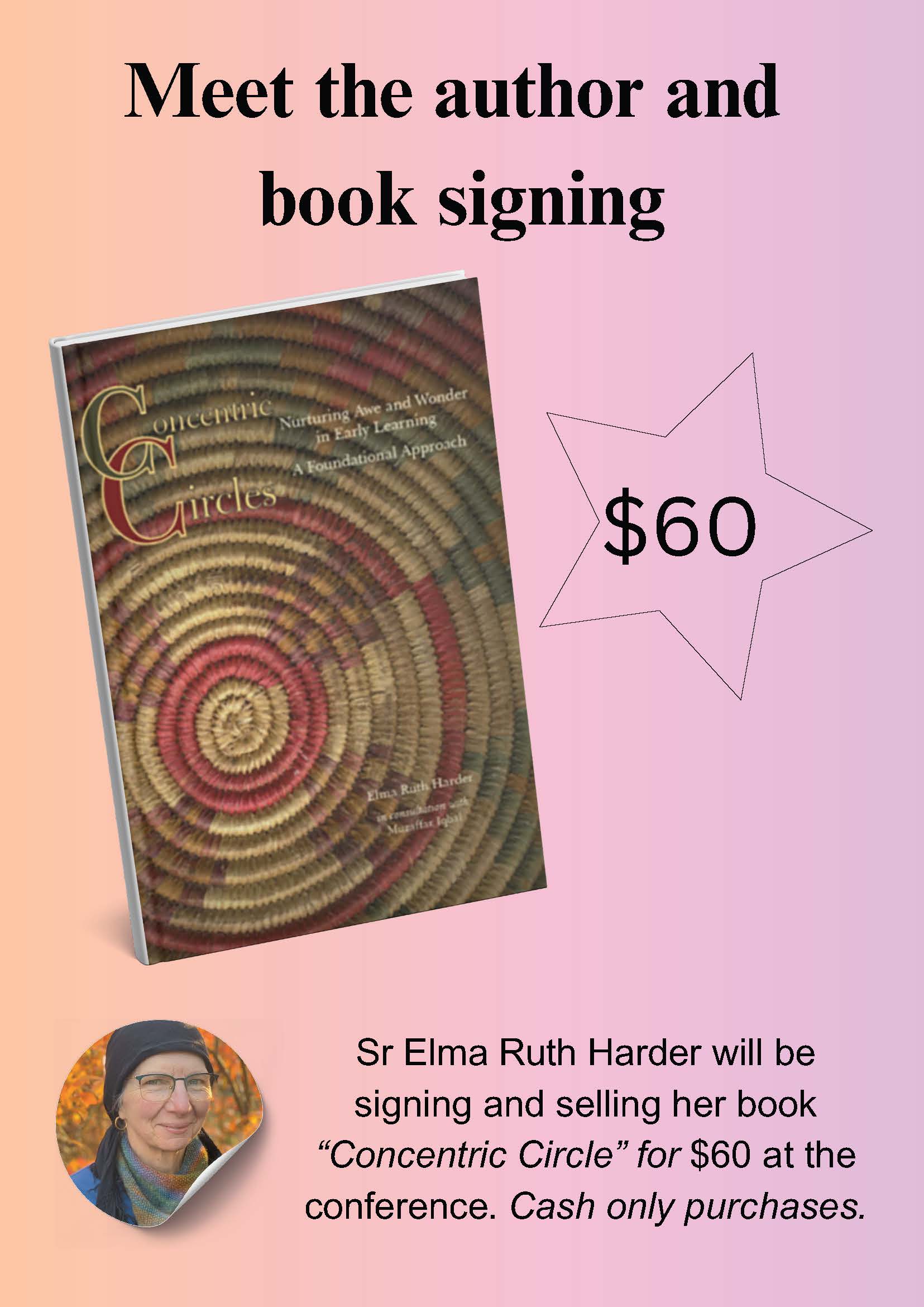
From Muslim to Islamic Schools is a joint initiative of the Muslim Education Foundation and Center for Islamic Sciences
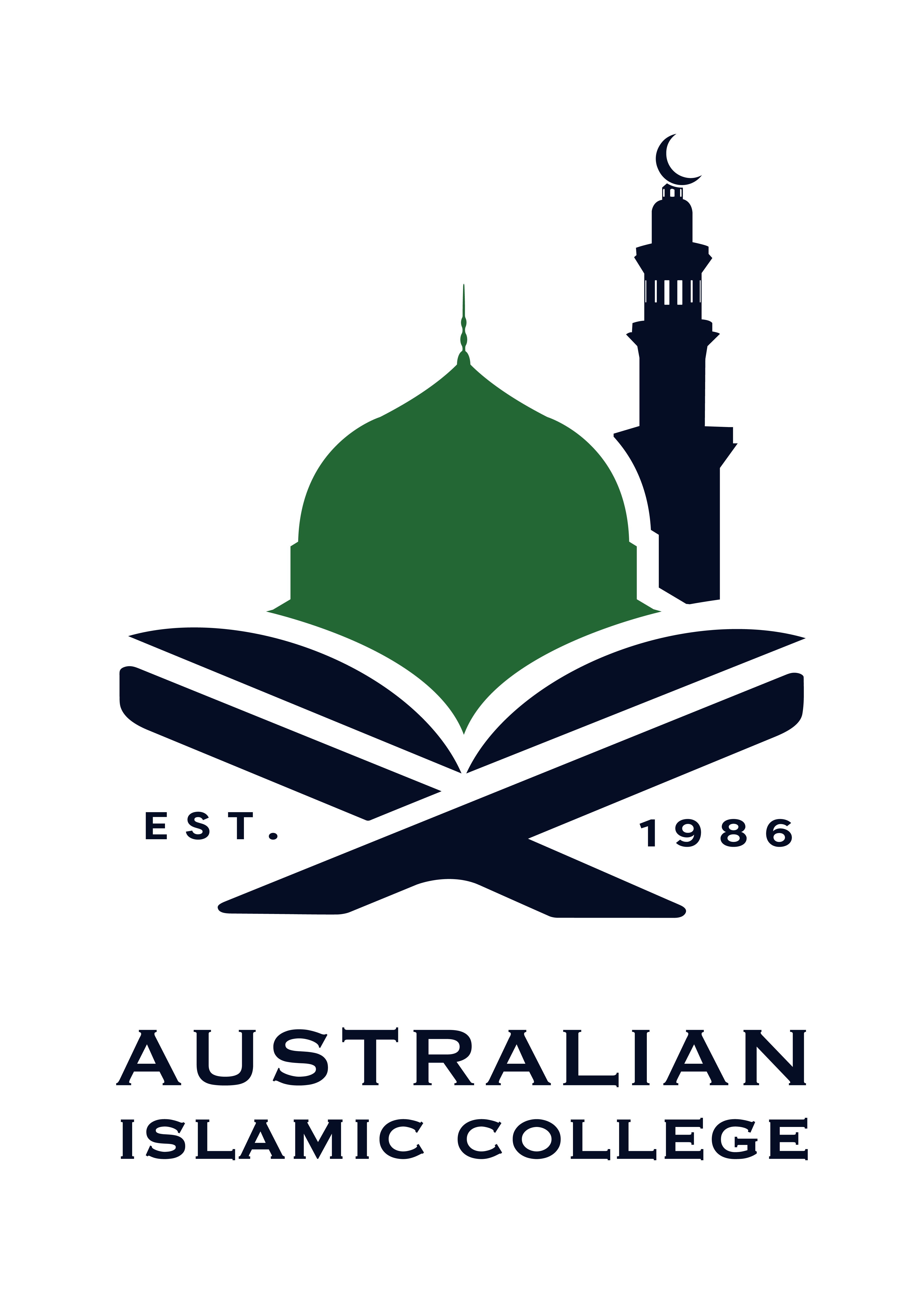













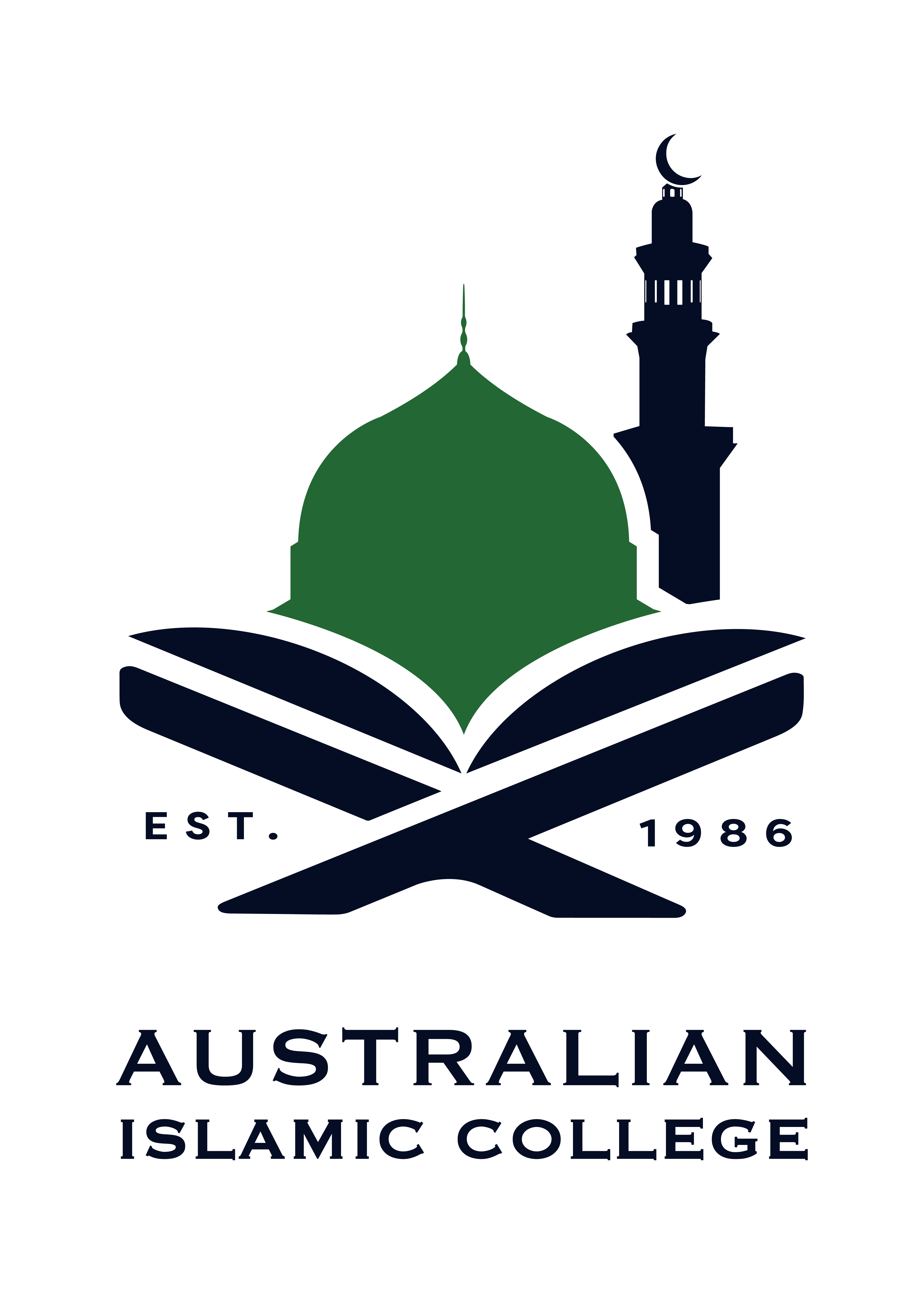
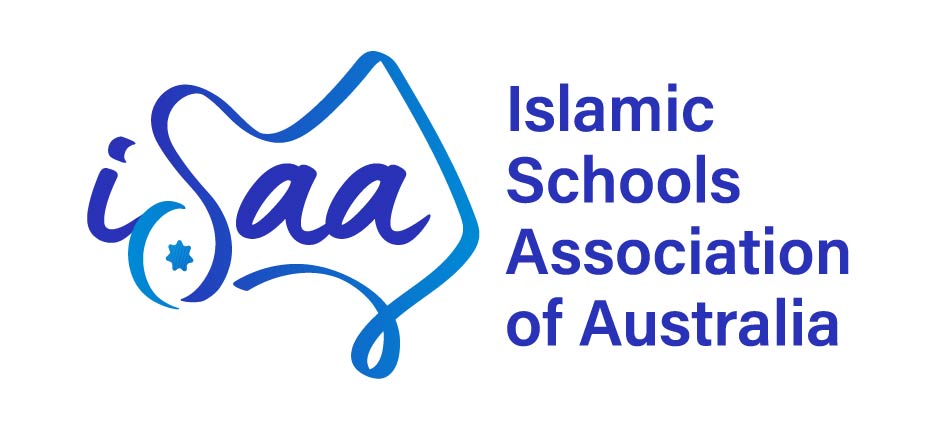
Australian Islamic College is our generous partner in co-hosting the 8th Annual Australian Islamic Schooling Conference. Islamic Schools Association of Australia .
Compass empowers independent schools to thrive by simplifying school management.
Our all-in-one, cloud-based platform connects every stage of the school journey, from enrolments to alumni, with built-in finance, analytics, and communication tools. Custom-branded portals and mobile apps streamline daily operations, while flexible APIs support integration as schools grow. Developed locally and shaped by educator insights, Compass delivers tailored solutions with expert support. Chat with our friendly team to see how we can help your school succeed. www.compass.education
5 Before 5 Solutions, Founded by Yousef Alkarnaz and Dean Mousad, develops capable, purpose-driven individuals who lead through personal growth, meaningful community impact, and a forward-thinking commitment to the progress of the ummah.
We offer a wide range of services including educational consultancy, immersive programs, mentoring and coaching. Whether we’re working with young people, schools, families or organisations, our approach is both proactive and responsive, meeting people where they are and walking alongside them as they build skills, confidence and direction. www.5before5solutions.com.au
Renaissance – Supporting Whole Student Growth in Islamic Schools
At Renaissance, we help Islamic schools gain a deeper understanding of each learner - academically, emotionally, and cognitively. Through a Whole Student Approach that brings together insights into attainment, wellbeing, and potential, educators can make informed decisions that support meaningful growth. With tools from GL Education and our Literacy Solutions, we empower schools to differentiate effectively and align assessment with a holistic educational vision - ensuring every child is seen, supported, and empowered to thrive. www.renaissance.com.au
At NAB, we’re experts in Islamic financing and as Australia’s biggest business bank*, we’re a financial partner you can trust. As the only major bank with a dedicated Islamic finance offering, we’ve designed innovative solutions to meet the needs of Muslim businesses across Australia. Using our deep understanding of Islamic finance, we have a team of 80 bankers accredited with the experience and expertise to help grow your business and shape your future. https://nab.com.au/islamicfinance

The Islamic Schools Association of Australia (ISAA) is the peak body representing Islamic schools in Australia. ISAA advocates for and represents all member schools in particular and all Islamic schools in general on policy matters including representation at many forums at both State and Commonwealth levels. ISAA currently has 36 member Islamic schools. In March 2023 ISAA held its inaugural Executive Leadership Retreat, open to school leadership teams from ISAA member and non-member schools with the objective to further enhance networking, collaboration and boost leadership capacity.
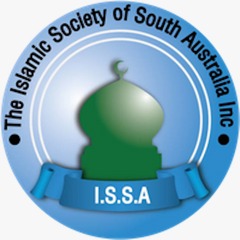
Established in 1955, the Islamic Society of South Australia (ISSA) has strong and entrenched links to CALD Communities across South Australia. ISSA provides the community with social, educational, and spiritual services such as Kids Fest, Al Salam Academy of Adelaide, Al Salam Funeral Services amongst others. We partner with community leaders, service providers, community-at-large to establish and foster intercultural relationships. With a diverse Muslim population living across SA, ISSA manages 5 mosques (metro and regional); providing a safe space for both social and spiritual congregation.
The evolution of MCCA from its humble beginnings to its current position as a leader in Islamic finance & investments underscores the organisation’s commitment to its principles and the community it serves. Through dedication, expansion, and innovation, MCCA has nurtured trust, provided essential financial services, and positioned itself as a significant player in Australia’s Islamic finance & investments landscape. Its journey continues to be one of growth, community empowerment, and adherence to Islamic values. www.mcca.com.au
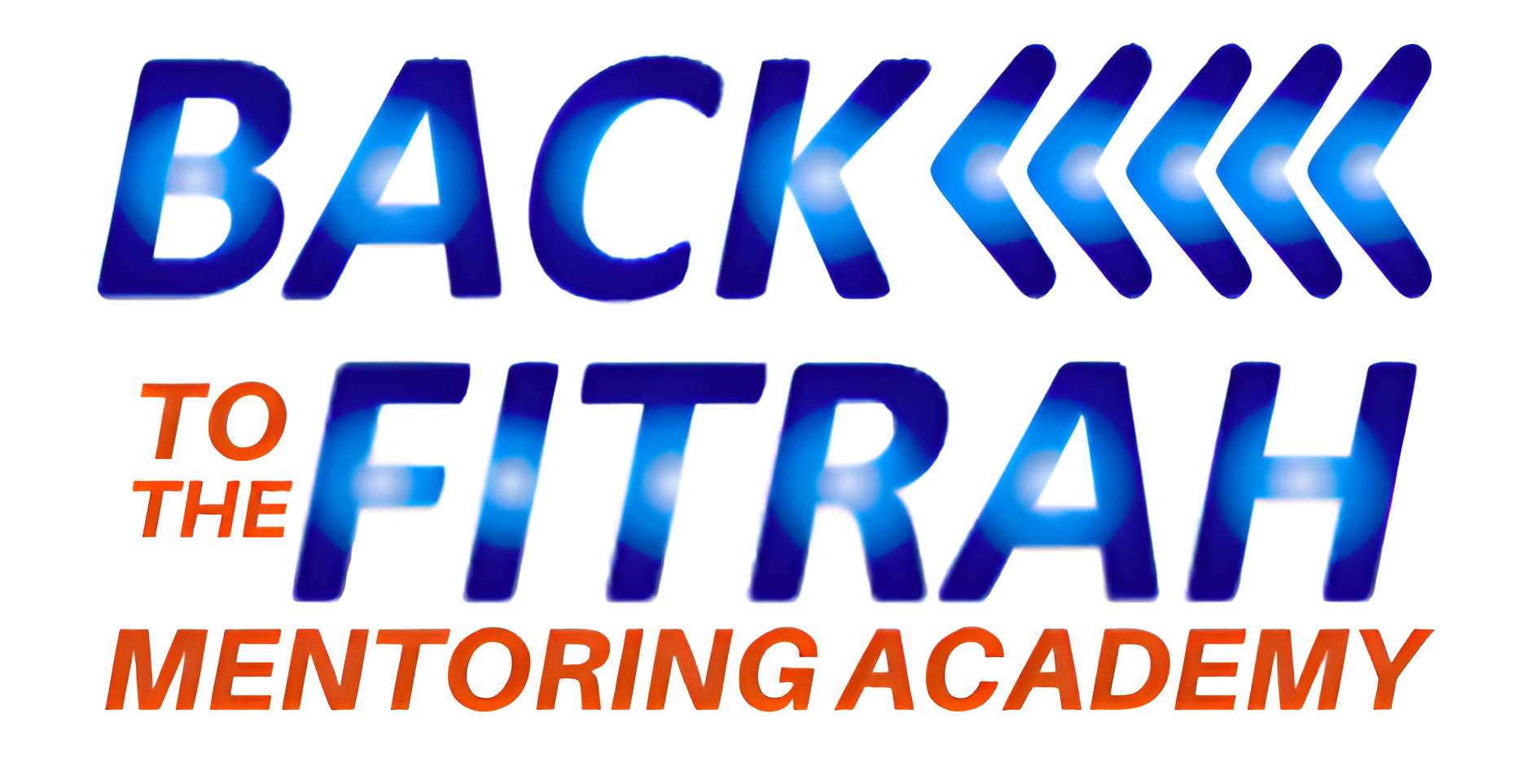
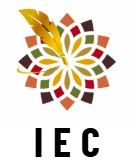
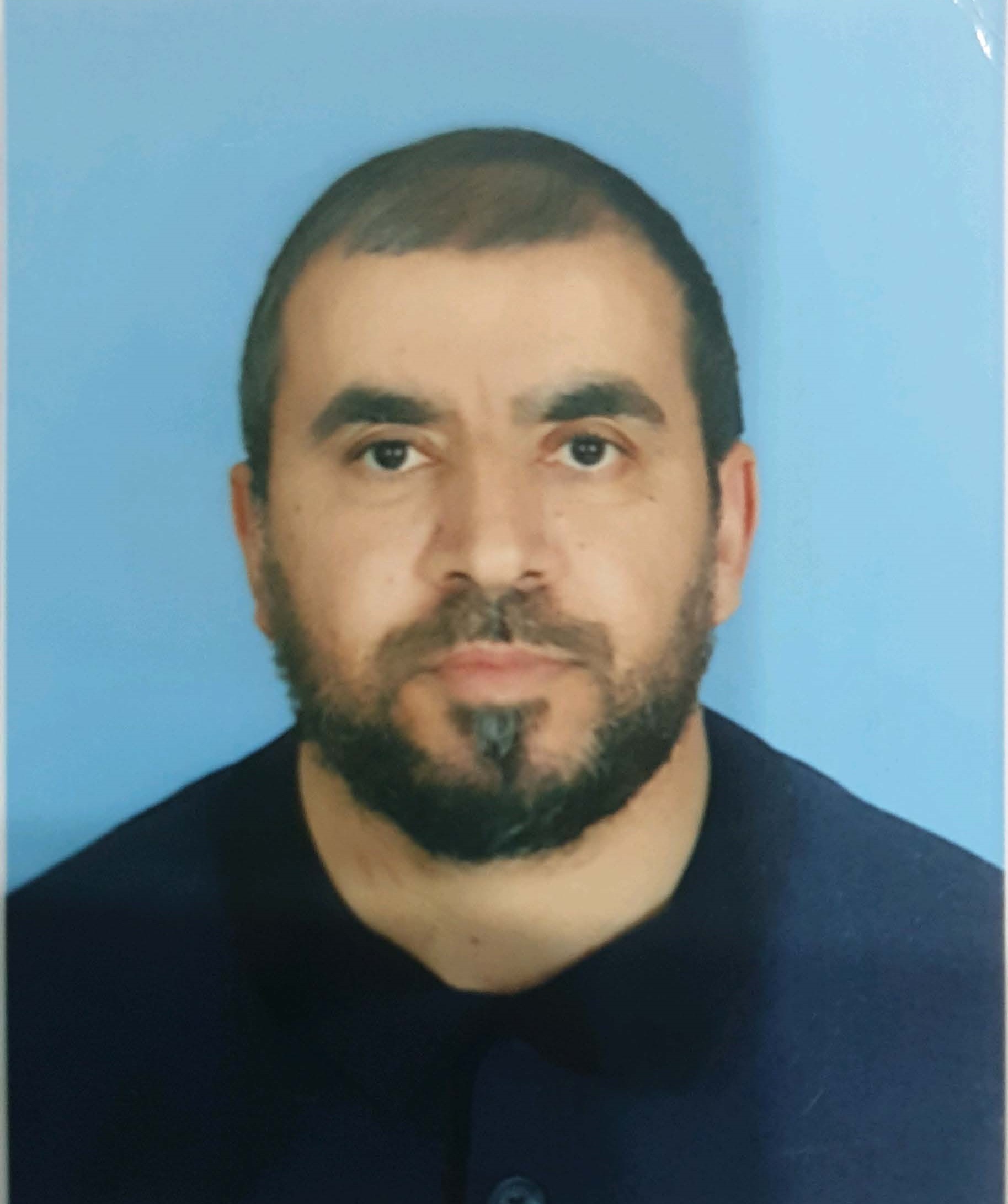 Dr Abdussalam Ali
Dr Abdussalam AliDr. Abdussalam Ali has more than 20 years’ experience in IT discipline and Islamic studies education. A founder member and director of The Dawn Quranic Institute Australia established 2008 for providing Quranic education services. Lecturer in different universities and institutes in IT discipline. These institutes include University of Technology Sydney (UTS), Victoria University (VU), Australian Catholic University (ACU), KENT institute, APIC college and SHEA college. Has many publications in IT within conferences and journals. Authored the book of Mastering the Tajweed in Arabic and English. Teacher of many Islamic related subjects including Quran recitation, the science of the Quran and Tafseer (Quran Explanation) and Arabic language.
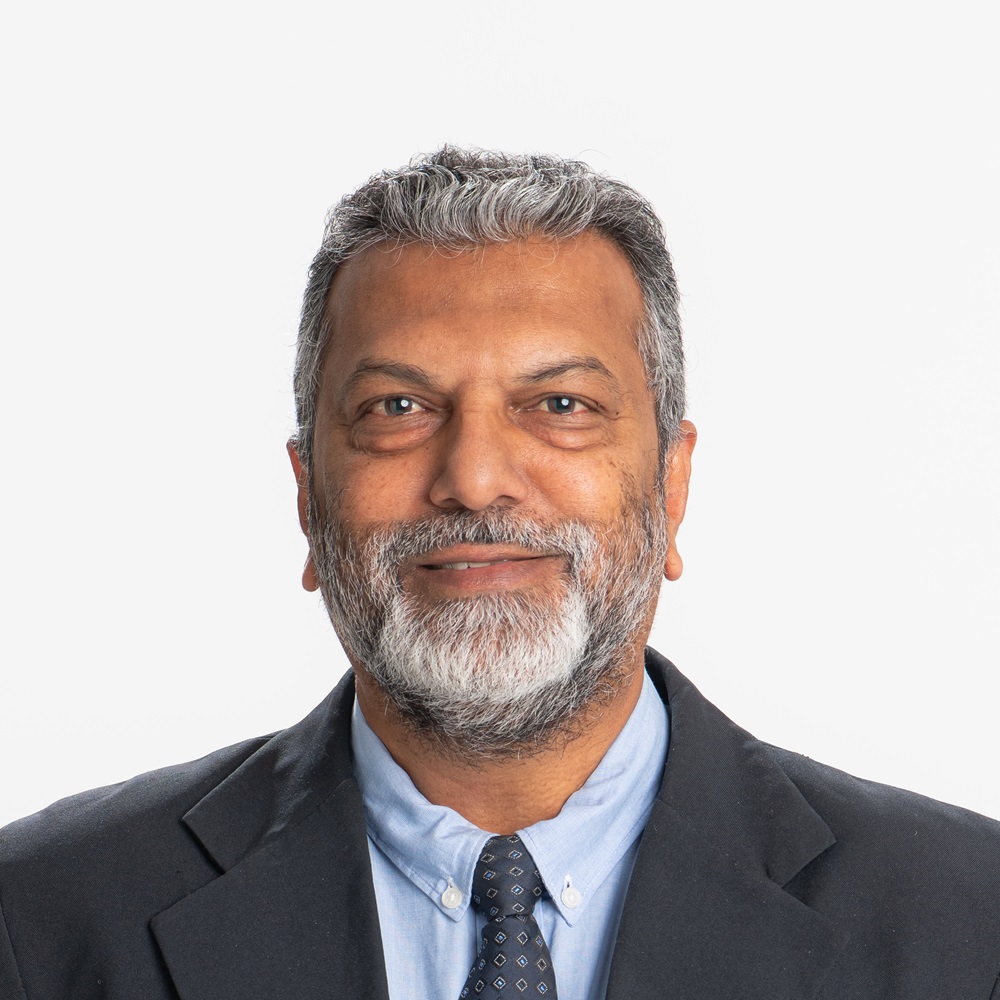 Dr. Jan Ali
Dr. Jan AliJan A. Ali (PhD) is a Senior Lecturer in Islam and Modernity in the School of Humanities and Communication Arts at Western Sydney University. He is the Convenor of Islamic Studies in the School of Humanities and Communication Arts. Jan is also the Founding Convenor of the WSU Postgraduate Islamic Studies Network and was the Community and Research Analyst in the Religion and Society Research Centre at the Western Sydney University. Jan is a religious sociologist by training who specialises in Islam. His main sociological focus is the study of existential Islam. His published books are Islamic Revivalism and Social Transformation in the Modern World (Basel: MDPI, 2023); Organ Transplantation in Islam: Perspectives and Challenges (Basel: MDPI, 2022); A Sociological Study of Tabligh Jama’at: Working for Allah (Cham: Palgrave Macmillan, 2022); Islam and Muslims in Australia: Settlement, Integration, Shariah, Education and Terrorism (Melbourne: Melbourne University Press, 2020); Islam in the West: Perceptions and Reactions (Delhi: Oxford University Press, 2018, co-editor); and Islamic Revivalism Encounters the Modern World: A Study of the Tabligh Jama’at (Delhi: Sterling Publishers 2012).
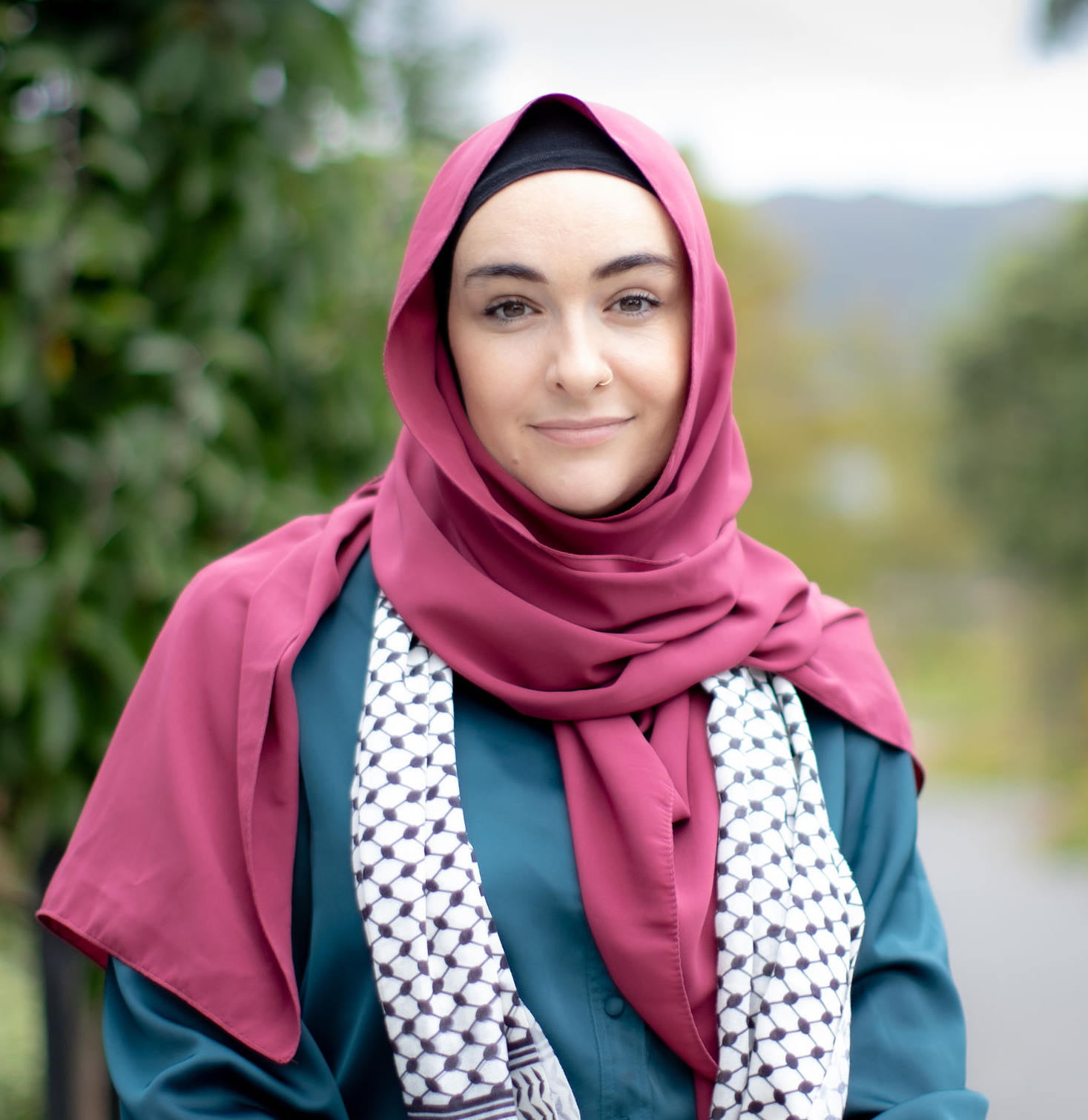 Khadija Al Kaddour
Khadija Al KaddourKhadija Al-Kaddour is a degree-qualified Parenting Consultant, mother of five boys, international keynote speaker, and experienced workshop facilitator. Since 2015, she has led hundreds of in-person and online workshops across Australia and New Zealand, engaging with multicultural Muslim communities and school-aged children (Years 5–10) in Islamic schools.
Khadija is the founder of Muslimah Motherhood Circles, an initiative empowering Australian Muslim mothers and educators to raise spiritually grounded, emotionally intelligent children. Her work centers on transforming intergenerational patterns, fostering resilience, and cultivating Islamic values in family and educational spaces. With a Bachelor of Social Science in Family and Children Studies, along with certifications in NLP coaching and Back to the Fitrah mentorship, and currently studying a masters in counseling, Khadija integrates Islamic and child psychology to nurture children's spiritual development from birth to adolescence. Her practice emphasizes non-quantitative, faith-based assessment in the early years—supporting Islamic schools and parents to recognize and build indicators of tawakkul (trust in Allah), and emotional regulation as lifelong tools for well-being and Islamic identity. Since 2022, Khadija has been delivering emotional well-being workshops for students in Years 5 to 10 at Al Ameen Islamic College Perth, fostering emotional intelligence and spiritual resilience through an Islamic lens.
Khadija’s approach bridges contemporary research, life experience, and traditional Islamic wisdom, making her a vital contributor to conversations on spiritually-aligned assessment and renewal in Australian Islamic schooling.
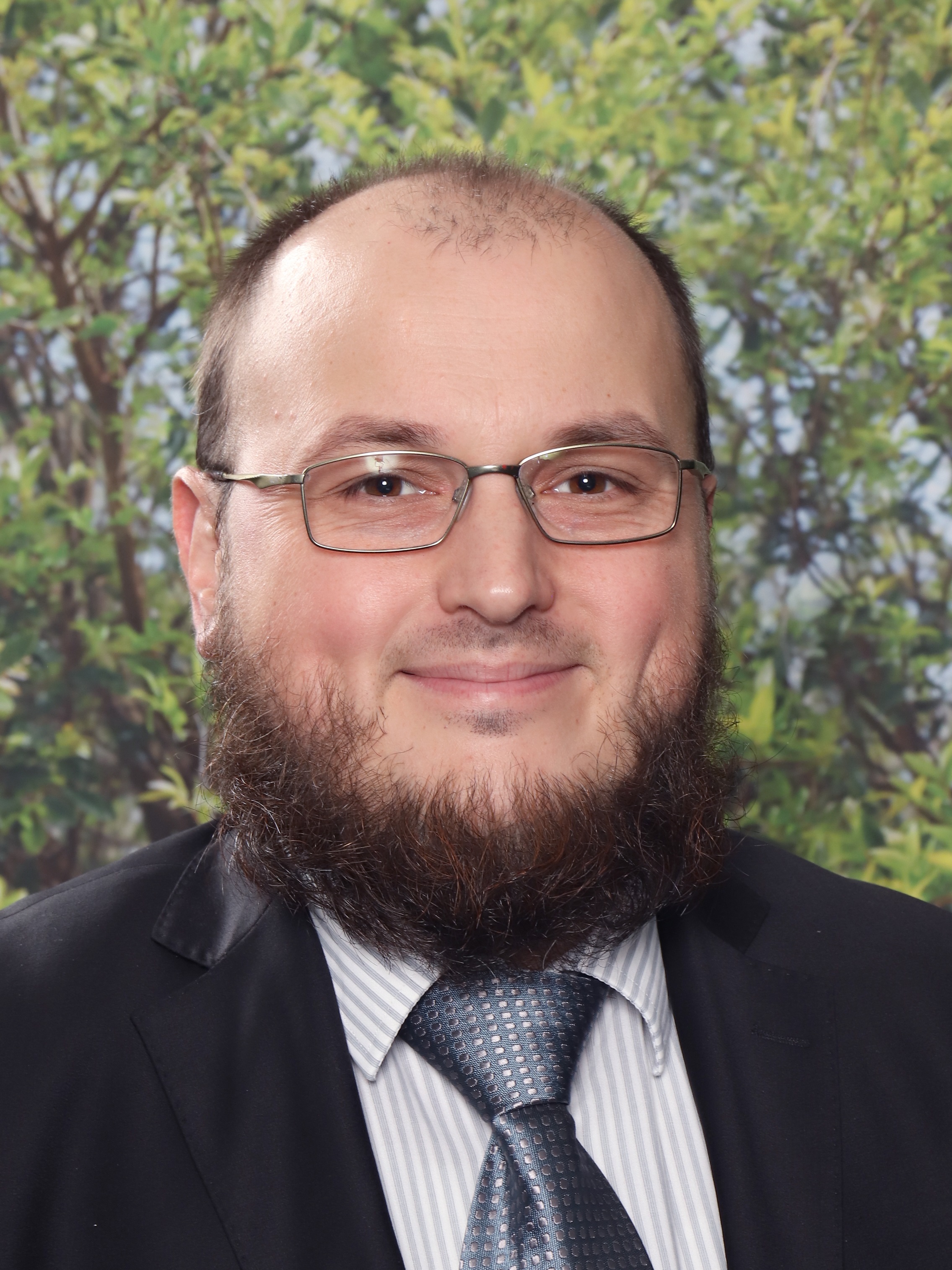 Dr. Ozan Angin
Dr. Ozan AnginDr Ozan Angin has a wide interest area of engaging young Muslims. He is a secondary English educator with 10 years of teaching experience, currently teaching at Malek Fahd Islamic School in Sydney, Australia. Ozan runs Islamic Schools Debating Australia, which facilitates inter school debating competitions amongst Islamic Schools in Sydney. Holding a PhD in Islamic Studies, Ozan is currently pursuing research opportunities within Islamic Pedagogy as well as the religiosity of Muslim youth in Sydney.
 Shannon Armitage
Shannon ArmitageShannon Armitage is the Director of Senior School (Teaching and Learning) at All Saints’ College in Perth, Western Australia. She is a passionate advocate for future-focused learning and systems change in education. Shannon holds multiple postgraduate qualifications, including a Master of Education (Gifted Education) and a Master of Educational Leadership, which underpin a career dedicated to pedagogical innovation and strategic curriculum development.
Since joining All Saints’ College, Shannon has played a key role in advancing the College’s involvement in the University of Melbourne’s New Metrics for Success partnership. As the first Western Australian school to join the initiative, All Saints’ College has been at the forefront of rethinking how student learning is assessed and recognised. Shannon’s leadership has helped deepen the College’s engagement with learner profiles, complex competencies, and future-focused assessment frameworks that move beyond traditional academic measures.
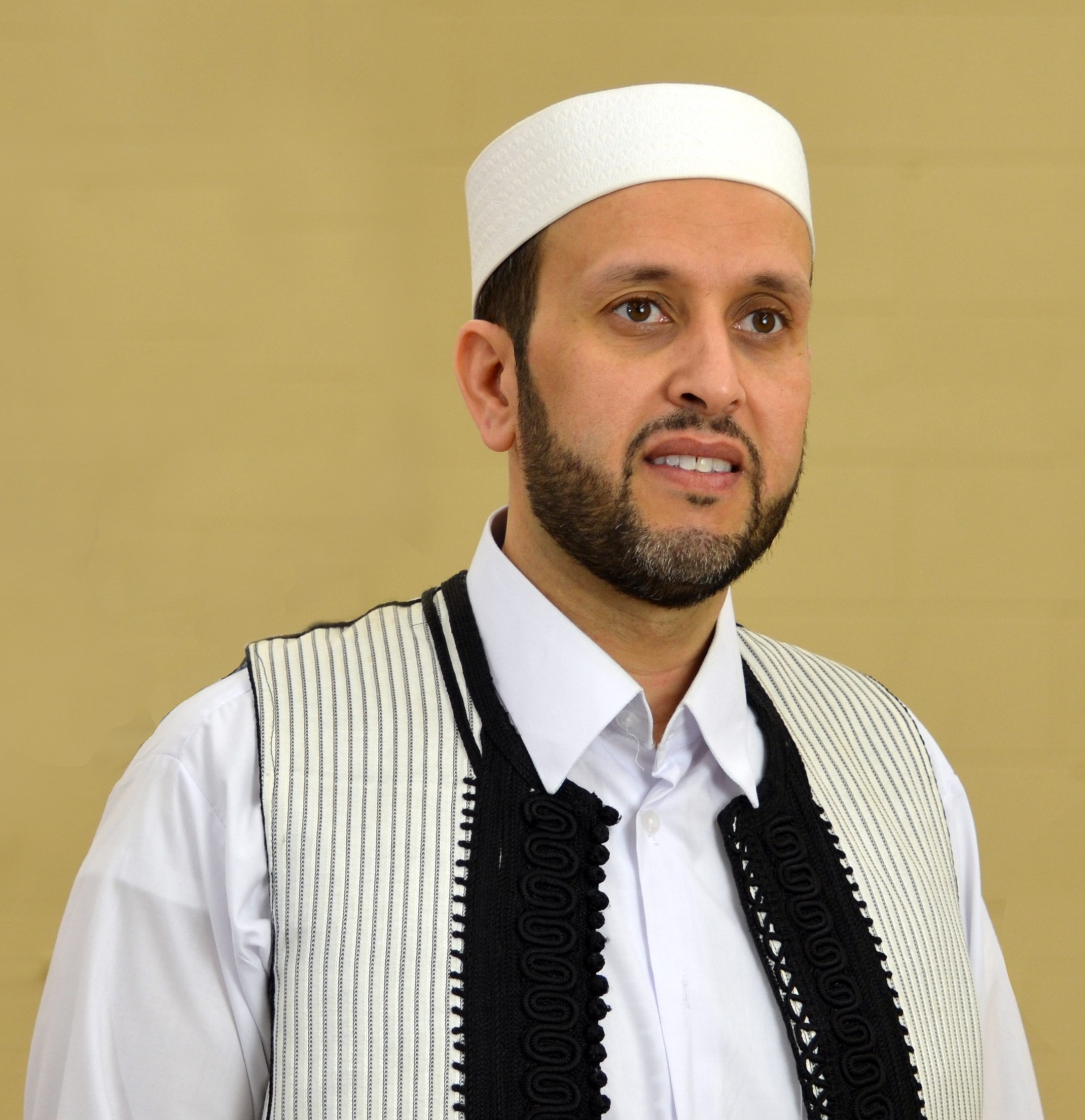 Sheikh Ahmed Mohammad Asheikhi
Sheikh Ahmed Mohammad AsheikhiSheikh Ahmed is an internationally respected Quranic educator and consultant, currently serving as Executive Director of Bidaya Quranic Academy and Director of the Mecca Institute for Quranic Studies in Chicago. He has trained and certified over 40 youth as Quran memorizers and instructors and continues to consult and train teachers across the U.S. He is also a founding figure of the MAS Institute for Quranic Studies and the American International Quran Competition.
He holds a Certificate for Imams and Educators from the European Institute of Islamic Studies (France) and a Certification in Quranic Teaching and Supervision from the Libyan Ministry of Religious Endowments. He received Ijazahs in Qalun and Hafs under Sheikh Mahmoud Al-Zureina and mastered Quranic orthography (Rasm) and Mutashabihat at the Sufyan Al-Thawri Institute in Libya. Sheikh Ahmed is the author of the Bidaya Curriculum, a structured and effective method for teaching Quranic reading. The curriculum has been endorsed by leading scholars including Sheikh Karim Rajeh, Sheikh Ahmad Al-Ma’sarawi, Dr. Yahya Al-Ghawthani, and Sheikh Waleed Idris Al-Manisi. Through his leadership and innovation, Sheikh Ahmed continues to shape Quranic education both locally and globally.
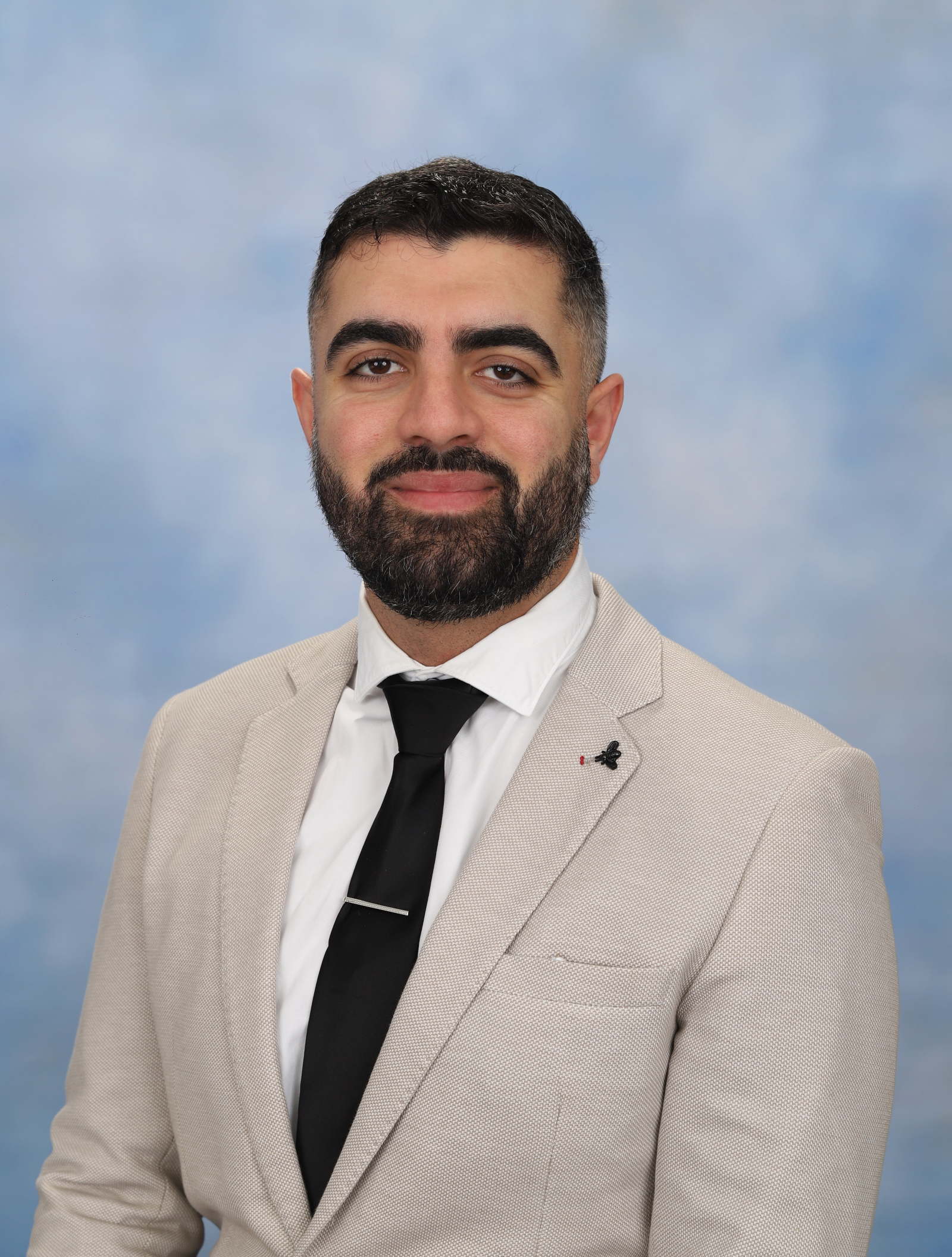 Abrahim Al-Zubeidi
Abrahim Al-ZubeidiAbrahim Al-Zubeidi is a teacher, writer, and lecturer, leading the Religious Studies and Faith department as the Head of Illumination at Playford College in Adelaide, Australia. He holds a Bachelor of Engineering and a Bachelor of Business from Swinburne University, as well as a Master of Teaching and a Graduate Certificate in Islamic Education from the University of South Australia.
Abrahim is a PhD candidate in Islamic Education and Teacher Training at the University of South Australia and is concurrently studying Islamic sciences. He holds a diploma in Islamic theology and is pursuing a bachelor’s in Islamic sciences. His current research in Islamic education and teacher training led him to establish the Simurgh Institute, which explores renewal in education through workshops, research, and community engagement. He regularly lectures and conducts workshops on contemporary faith issues and is the author of Tears from Heaven’s Flowers, an anthology of poetry. In his spare time, Abrahim enjoys camping, reading, Brazilian jiu-jitsu, and board games.
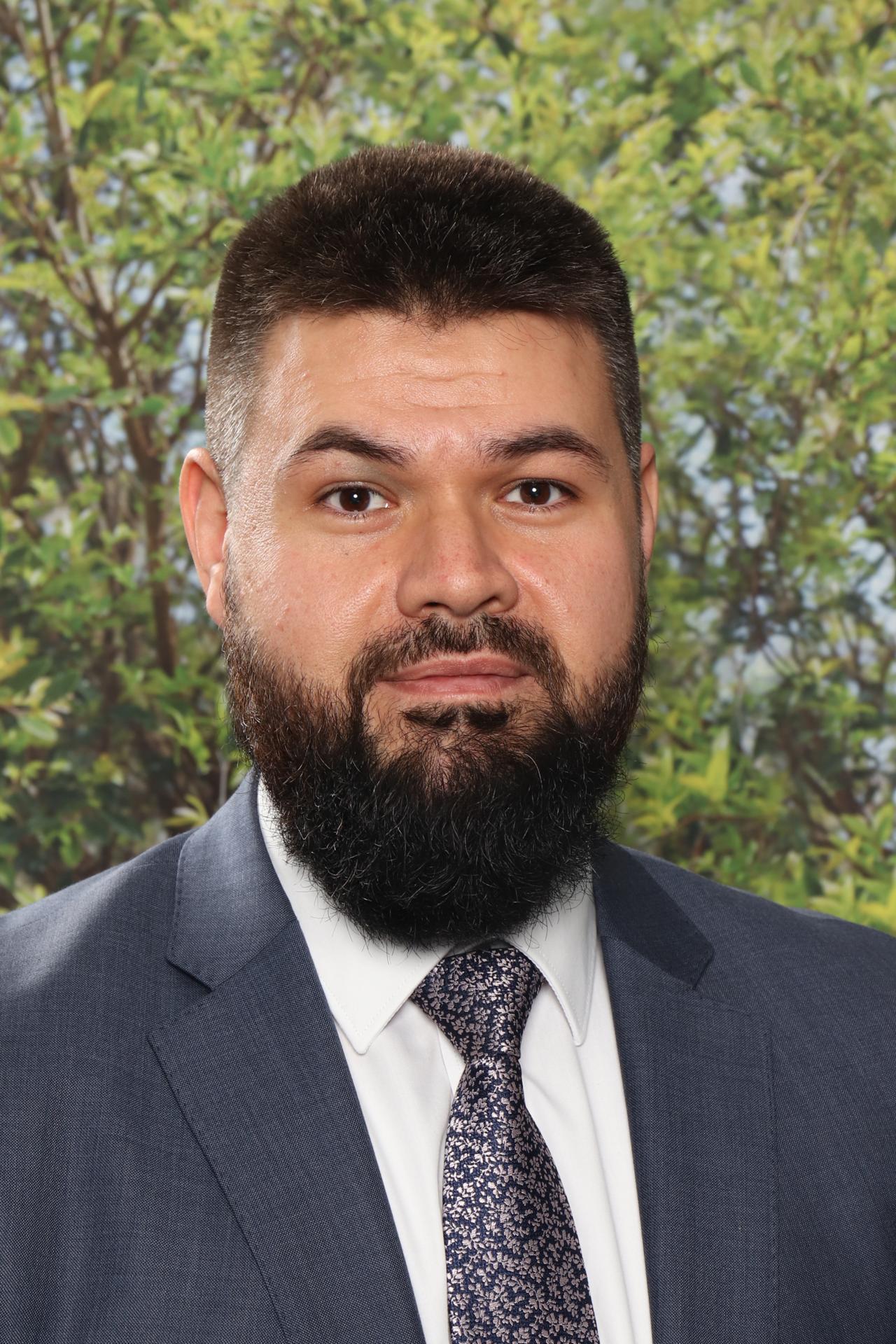 Ali Arabaci & Zena Maarbani
Ali Arabaci & Zena MaarbaniAli Arabaci is a father of five and currently serves as Head of Campus at Greenacre Primary, Malek Fahd Islamic School in Sydney. He holds a Bachelor of Arts in English Literature and Islamic Studies, and a Master of Teaching in Secondary English and Society and Culture. With senior leadership experience in the Islamic education sector, Ali is also an Executive Council member of the Islamic Schools Association of Australia. He has a deep interest in Classical Arabic, Hanafi Fiqh, and Tazkiyah (spiritual purification), and is currently undertaking a Doctor of Education at the University of South Australia, researching akhlaq development in the Islamic tradition and its implementation in Australian Islamic schools.
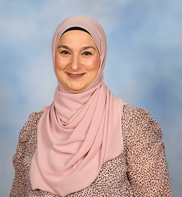 Zena Maarbani is a dedicated mother of two and an experienced educator based in Sydney. With extensive experience in the private education sector, she has held various roles, from class teacher to curriculum and administrative leadership positions. Throughout her career, Zena has been recognised for her expertise in behaviour management and her strong ability to build meaningful connections with students. She has consistently demonstrated leadership by mentoring teams and fostering positive learning environments. As a passionate advocate for the wellbeing of both staff and students, Zena has prioritised creating supportive, inclusive spaces for everyone in her school community. Currently, she serves as the Wellbeing Coordinator at Malek Fahd Islamic School, Greenacre Primary campus, where she continues to support both students and staff, ensuring their emotional needs are met.
Zena Maarbani is a dedicated mother of two and an experienced educator based in Sydney. With extensive experience in the private education sector, she has held various roles, from class teacher to curriculum and administrative leadership positions. Throughout her career, Zena has been recognised for her expertise in behaviour management and her strong ability to build meaningful connections with students. She has consistently demonstrated leadership by mentoring teams and fostering positive learning environments. As a passionate advocate for the wellbeing of both staff and students, Zena has prioritised creating supportive, inclusive spaces for everyone in her school community. Currently, she serves as the Wellbeing Coordinator at Malek Fahd Islamic School, Greenacre Primary campus, where she continues to support both students and staff, ensuring their emotional needs are met.
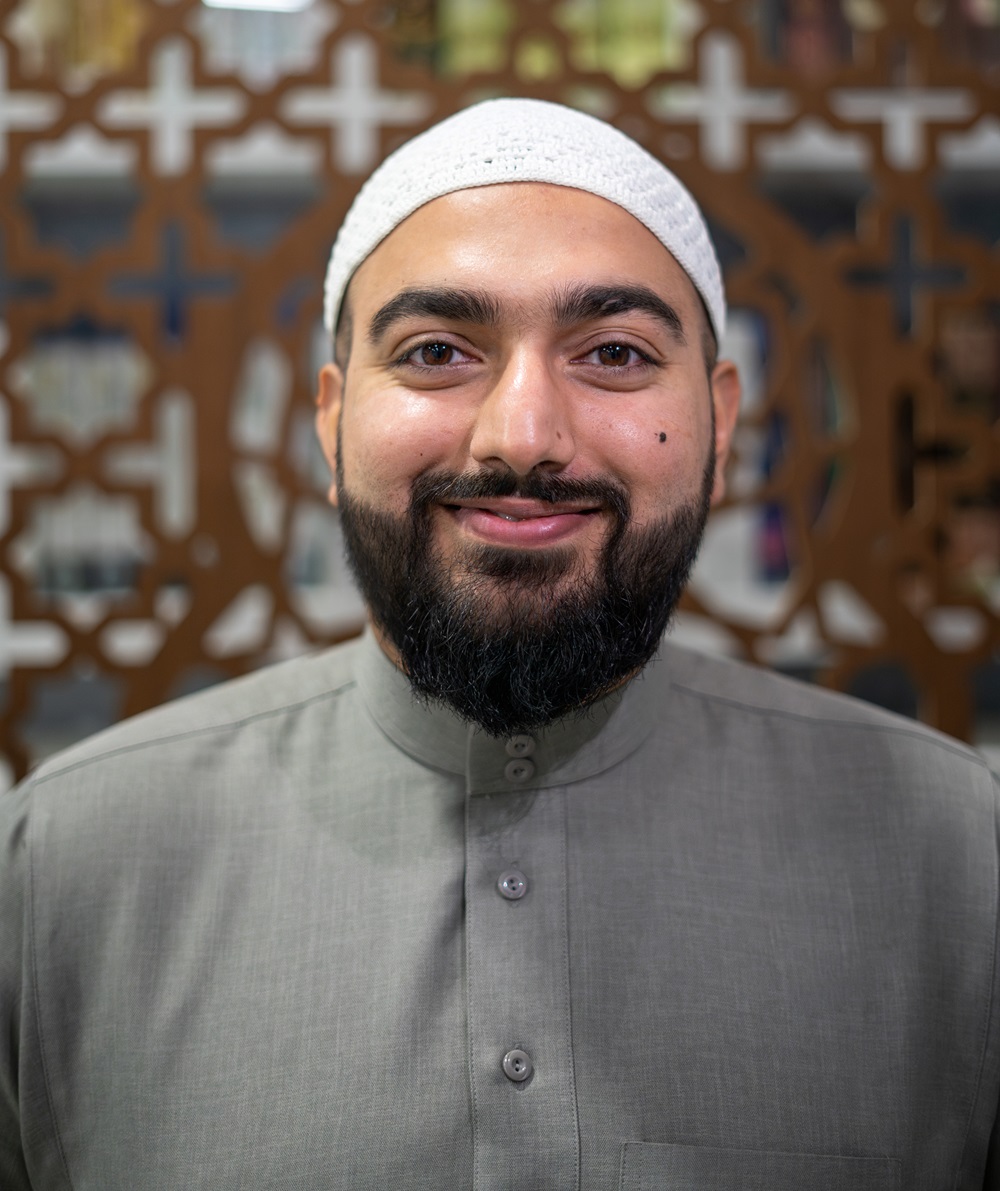 Numan Attique
Numan AttiqueNuman Attique is a Canadian Islamic educator and researcher specializing in classical theology, moral philosophy, and educational reform. He serves as the National Director of Research and Education for ICNA Canada, as well as the Director of Education for Northern Lights Solutions, Inc., where he leads the development of curricula rooted in Islamic ethics and spiritual formation. Based in Milton, Ontario, he also oversees community programming at ICCM, fostering youth and family engagement in faith-centered education.
Having memorized the Qur’an at age 13, Numan spent over a decade studying Islamic sciences in Riyadh under senior scholars. He is a graduate of a five-year Sharia and Dawah program sponsored by the Ministry of Islamic Affairs. Since 2017, he has been pursuing a 10-year specialization in Ilm al-ʿAqeedah under the guidance of Dr. Sultan Al-ʿUmayri in Makkah. He is also completing a Master’s in Theological Studies at Huron College (Western University) and holds a Bachelor’s degree in Human Kinetics from the University of Guelph. His work bridges Islamic scholarship and contemporary pedagogy, with a special focus on rethinking assessment, integrating moral philosophy into curriculum, and developing faith-driven youth leadership rooted in Islamic tradition.
 Sofia Begam
Sofia BegamSofia Begam is a secondary science educator and author for children’s books. She is currently the Head of Science at Malek Fahd Islamic School (MFIS) and pursuing her studies in Graduate Certificate in Islamic Education. Sofia strives to ensure that her learners are supported to develop holistically. With more than twenty years of teaching across all stages of the secondary science, she is passionate about aligning the syllabus with Islamic Pedagogy and Islamic worldview to enhance learning. As an author of Children’s book, Sofia is conscious of how literature can guide the moral, spiritual and ethical compass of a learner through storytelling. Sofia believes that just like stories in books have themes or ‘intentions’ carved by the author to draw out emotions to develop the child, the science educator can carve the science syllabus by integrating Islamic Pedagogy and Islamic Worldview to tap deeper and develop the child holistically with lifelong moral, ethical and spiritual lessons.
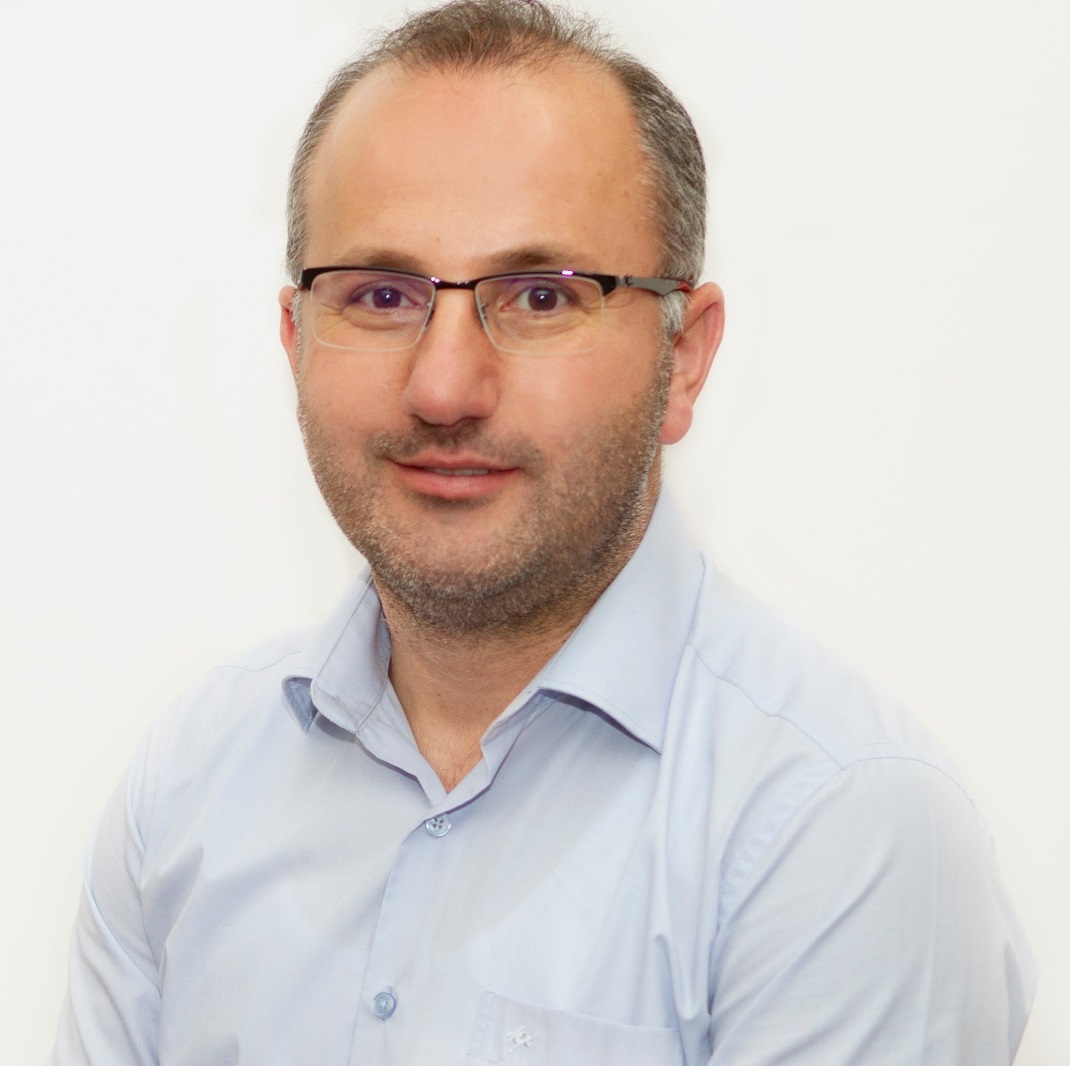
Dr Hakan Coruh holds the position of senior lecturer at CISAC (Centre for Islamic Studies and Civilisation) at Charles Sturt University. He successfully completed his PhD at Australian Catholic University in 2015. His primary areas of expertise encompass classical and modern Qur'anic exegesis, Islamic ethics (akhlāq), Islamic legal theories (usul al-fiqh) and jurisprudence (fiqh), Islamic theology, contemporary Islamic thought, and comparative theology.
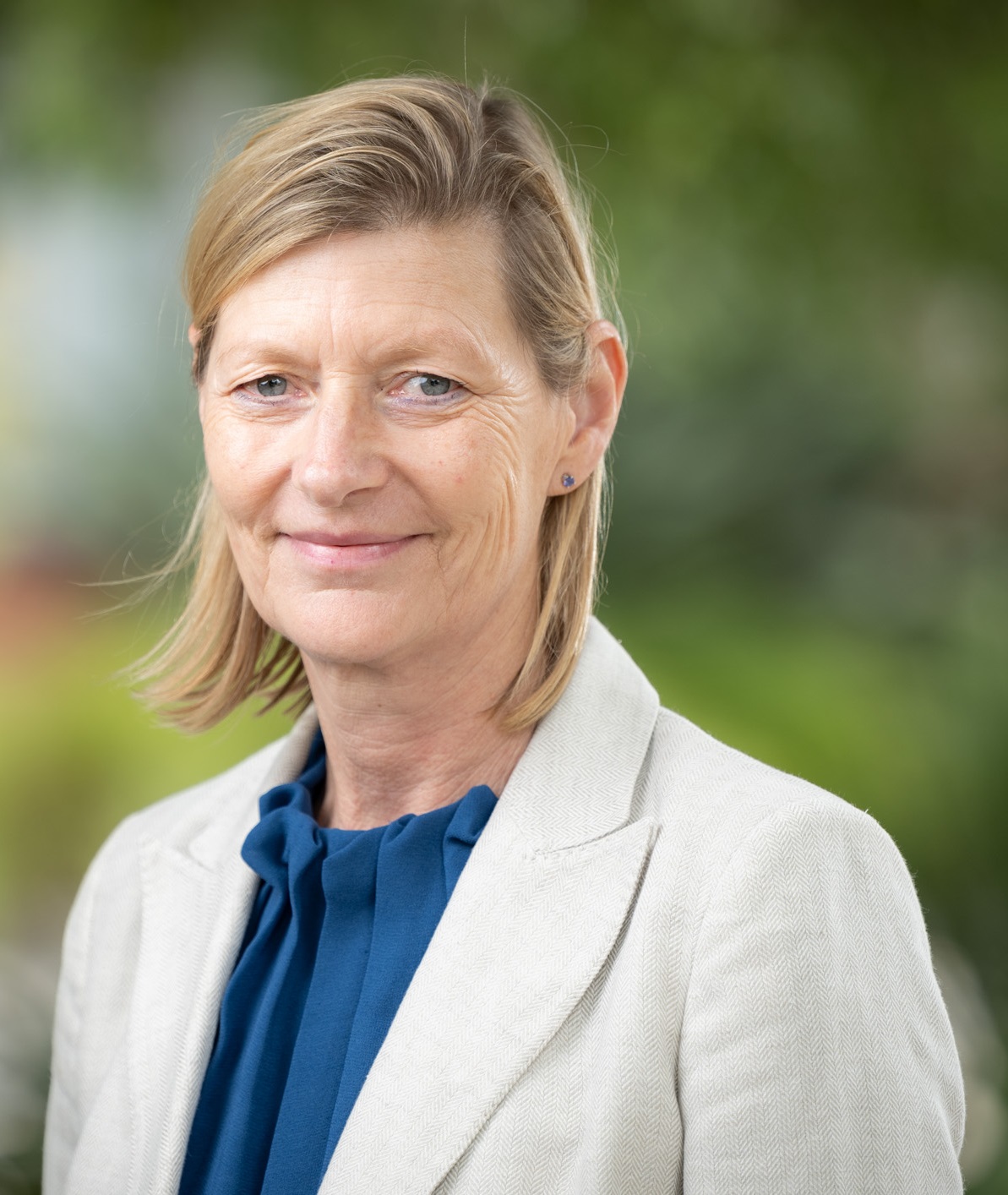 Kate Croft
Kate CroftKate Croft is the Deputy Principal of Learning at Carey Grammar School, where she leads the development and implementation of innovative educational strategies. With a Master of Education, Kate brings extensive experience from her teaching career across Tasmania, Victoria, and the UK. She has held a variety of leadership positions, including Head of Middle School, Head of Senior School, and Deputy Principal. Passionate about pedagogy, assessment, and the overall learning experience, Kate is committed to fostering an environment where both students and educators can thrive.
A strong advocate for holistic student development, Kate believes that students are much more than their ATAR results. She has spearheaded a partnership with Melbourne Metrics, helping to expand Carey Grammar’s approach to student growth, ensuring that learning is focused not just on academic achievement, but on the broader skills and wellbeing that contribute to lifelong success.
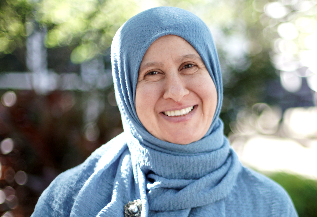 Hanan Dover
Hanan DoverHanan Dover is a Clinical and Forensic Psychologist and a prominent international lecturer in Islamic Psychology at Charles Sturt University / ISRA. She is the founding developer of the first university-accredited Islamic Psychology program in the Western world and has been pioneering initiatives integrating Islamic epistemology with contemporary psychological practice. As Founder and current President of Mission of Hope and Vice President of the International Association of Muslim Psychologists, she leads numerous mental health and trauma-informed initiatives, including the Afiya Employee Assistance Program (EAP) tailored for Muslim schools and organisations. Hanan is widely recognised for her contributions to culturally responsive therapeutic frameworks, particularly in supporting vulnerable Muslim populations. With over two decades of experience, and four psychology university degrees from Western Sydney University, she is deeply committed to developing spiritually attuned and socially just psychological services.
Dounya Fattouh is an experienced Mathematics and Secondary Learning and Support Teacher with over 16 years in education, currently working at Irfan College NSW. She holds a Bachelor of Education (Secondary Mathematics) and is currently completing a Graduate Certificate in Inclusive Education. Her diverse teaching background spans mainstream, Islamic, and alternative educational settings, including leadership roles such as Head Teacher and Curriculum Coordinator. She has worked extensively with students with behavioural and emotional needs, developed targeted numeracy programs, and led whole-school wellbeing initiatives. She has also contributed to strategic school improvement through her work in educational change management. Her professional practice is deeply informed by Islamic pedagogy and a commitment to inclusive, student-centred learning. She is passionate about fostering the wellbeing and spiritual growth of all learners and believes in nurturing future generations of Muslims who will carry forward a legacy of knowledge, integrity, and faith. Her work reflects a balance of professional excellence and purposeful, values-driven education.
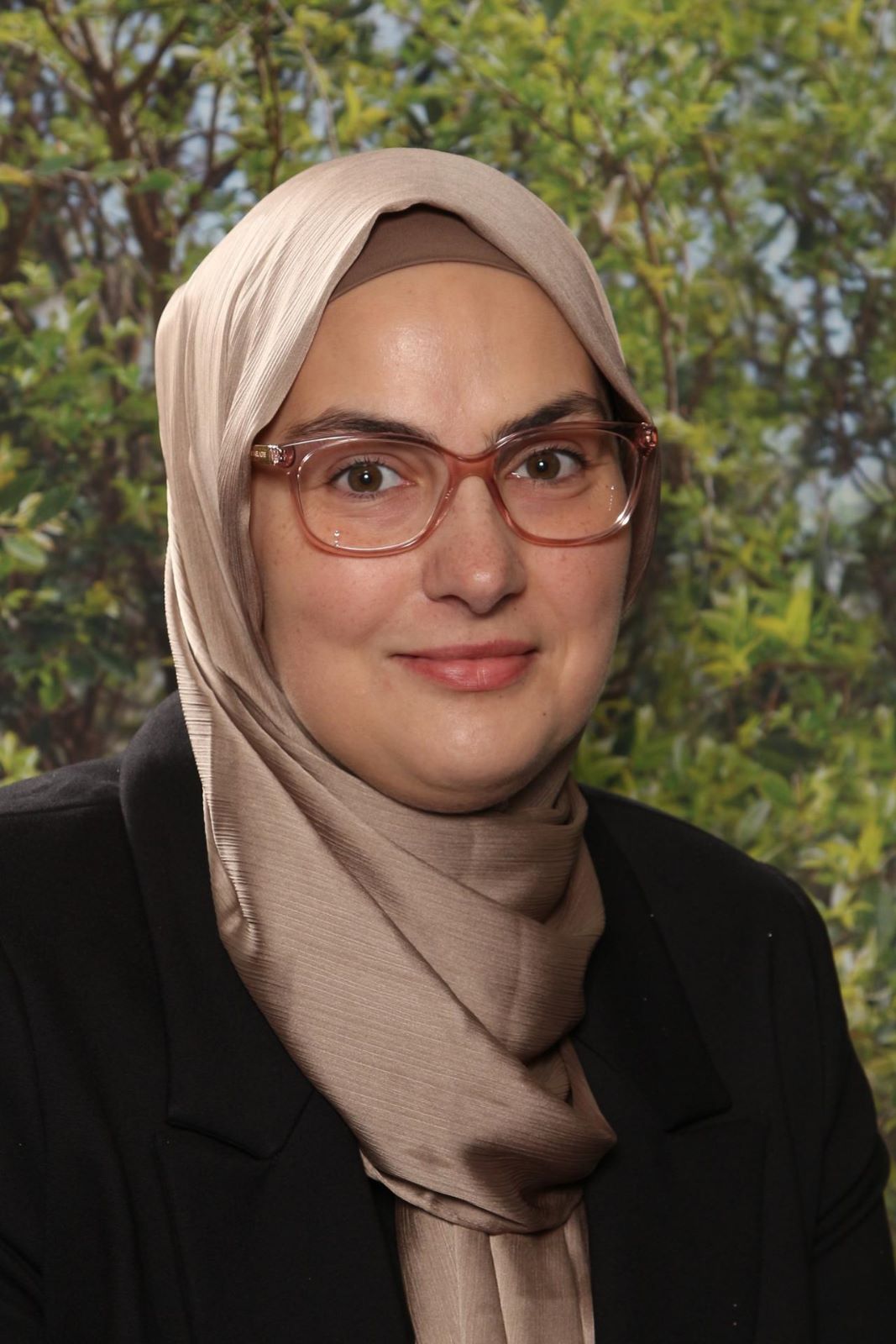 Eman Aweida is currently serving as the Faith and Service Coordinator at Irfan College, a K-12 Islamic school in Sydney. She brings a wealth of experience in Islamic Education across Primary, Secondary and Tertiary levels. Passionate about Islamic pedagogy, she integrates faith seamlessly into the curriculum, helping students deepen their connection to Islam in both knowledge and practice.
Eman Aweida is currently serving as the Faith and Service Coordinator at Irfan College, a K-12 Islamic school in Sydney. She brings a wealth of experience in Islamic Education across Primary, Secondary and Tertiary levels. Passionate about Islamic pedagogy, she integrates faith seamlessly into the curriculum, helping students deepen their connection to Islam in both knowledge and practice.
Ms Eman has completed a Bachelor of Arts with a double major in English Literature and Islamic Studies. She has a Master of Teaching (Secondary) and is qualified to teach English and HSIE subjects. She was recognised as the inaugural graduate of the Graduate Diploma in Education (Islamic Education) at the Centre for Islamic Thought & Education, University of South Australia after joining the program in its first year, as an experienced mid-career educator. Through her learning journey in the program, and her grounding in Islamic Pedagogy as a foundation for practice, she has gone on to play a key role in innovative educational projects at her college around curriculum, assessment and pedagogy.
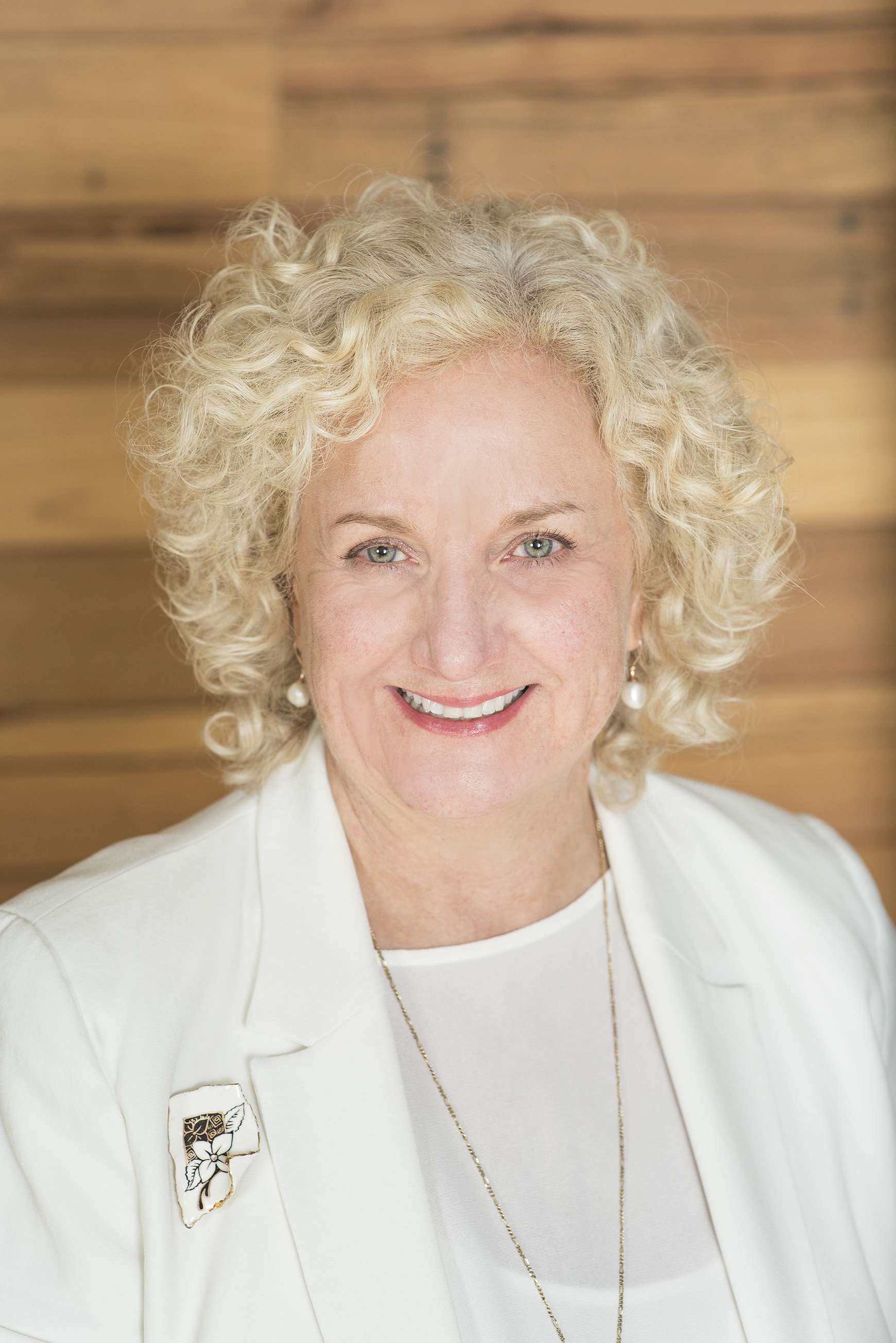 Ms Jayne Johnston - Enterprise Fellow
Ms Jayne Johnston - Enterprise FellowJayne Johnston is Melbourne Enterprise Fellow at Melbourne Metrics, a research and development centre within the Faculty of Education at the University of Melbourne. Melbourne Metrics works with school networks and industry partners to develop trusted research-based systems to assess and credential complex competencies (also called general capabilities or transversal skills) which are increasingly required for learners to thrive in education, employment and life. Jayne is currently leading teams of researchers, psychometricians and subject matter experts to develop and roll out competency-based assessment instruments and credentials for primary and secondary students, children in early childhood education, and early career teachers. Originally a teacher of mathematics, Jayne is a former Deputy Director General and has held other senior policy and leadership roles in three Australian state education departments.
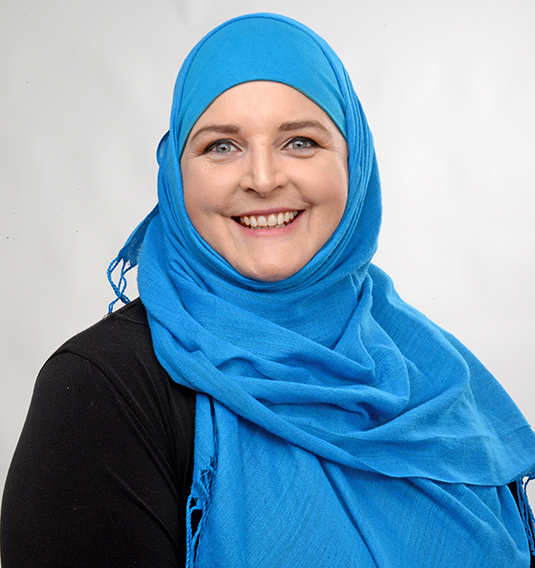 Kathryn Jones
Kathryn JonesKathryn Jones is dedicated to empowering educators to become Fitrah-focused leaders of learning, nurturing and protecting the innate spiritual guidance of their students. With a focus on developing the resilience of both educators and school communities, Kathryn works to ensure that Muslim children and youth are equipped with the strength to thrive in today’s world.
Through Back to the Fitrah Mentoring Academy, Kathryn advocates for a whole-school community approach that fosters spiritual, emotional, and intellectual growth, believing that resilience is built when educators are attuned to their own Fitrah and aligned with Islamic principles. By supporting educators in their own journey of self-development and reflection, Kathryn enables them to better nurture the Fitrah of their students and cultivate an environment where resilience is embedded at every level. Kathryn is a certified parenting educator and Inside Out Psychological Paradigm coach. She holds a BSc in Information Science, a Graduate Diploma in Teaching & Learning, and a Graduate Certificate in Education (Islamic Education) from the Centre for Islamic Thought & Education.
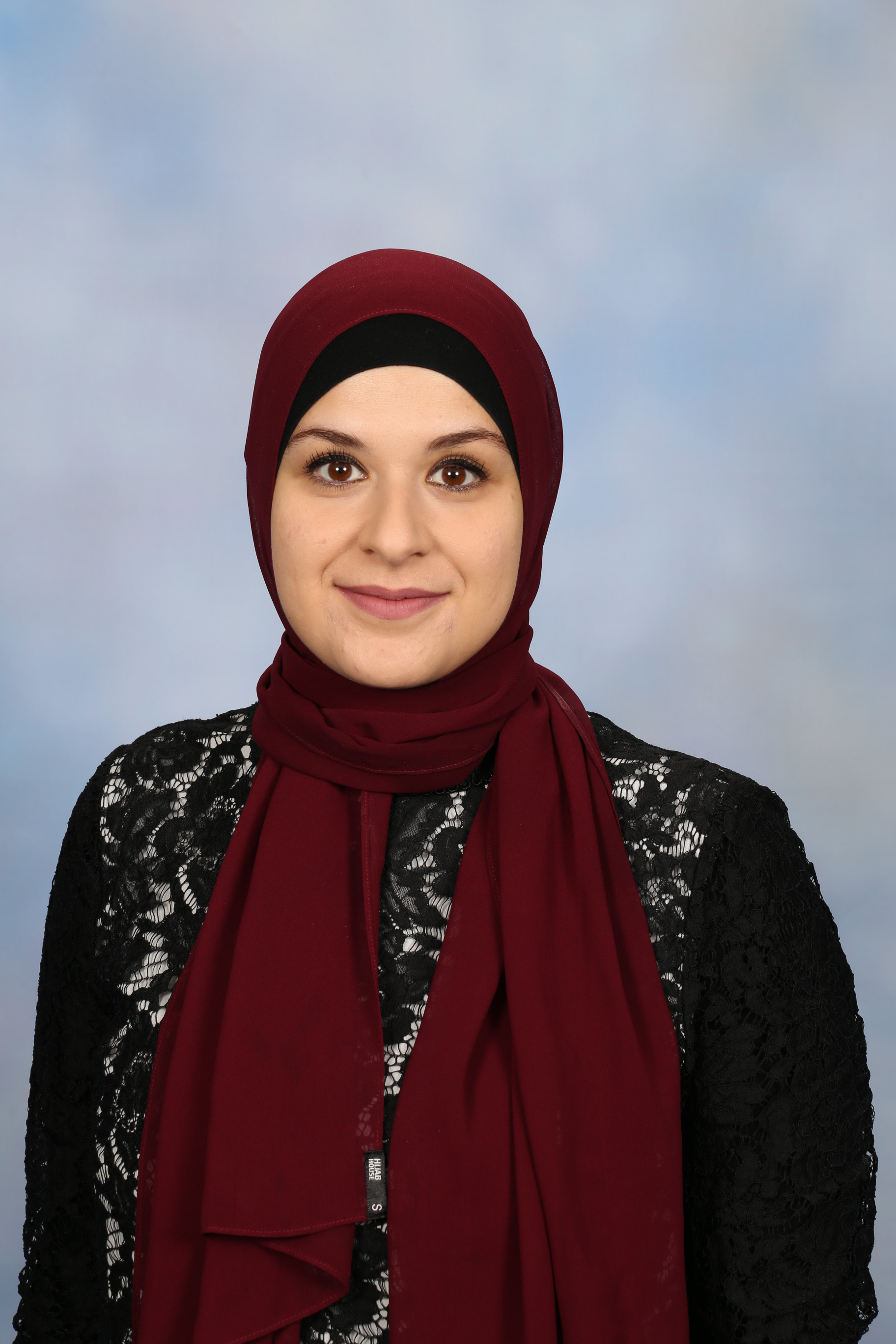 Maisaa Kassar
Maisaa KassarMaisaa Kassar is an English teacher at Malek Fahd Islamic School, Hoxton Park Campus. She holds a background in English education and curriculum development and has gained experience in the development of faith integrated curricula and assessment tools for Islamic schools. She is particularly interested in how to implement formative and summative assessments that are consistent with Islamic values but also improve students’ interest in the subject and their performance. Maisaa is committed to ensuring that students at Malek Fahd receive a well-rounded education that incorporates Islamic pedagogy with the Australian Curriculum.
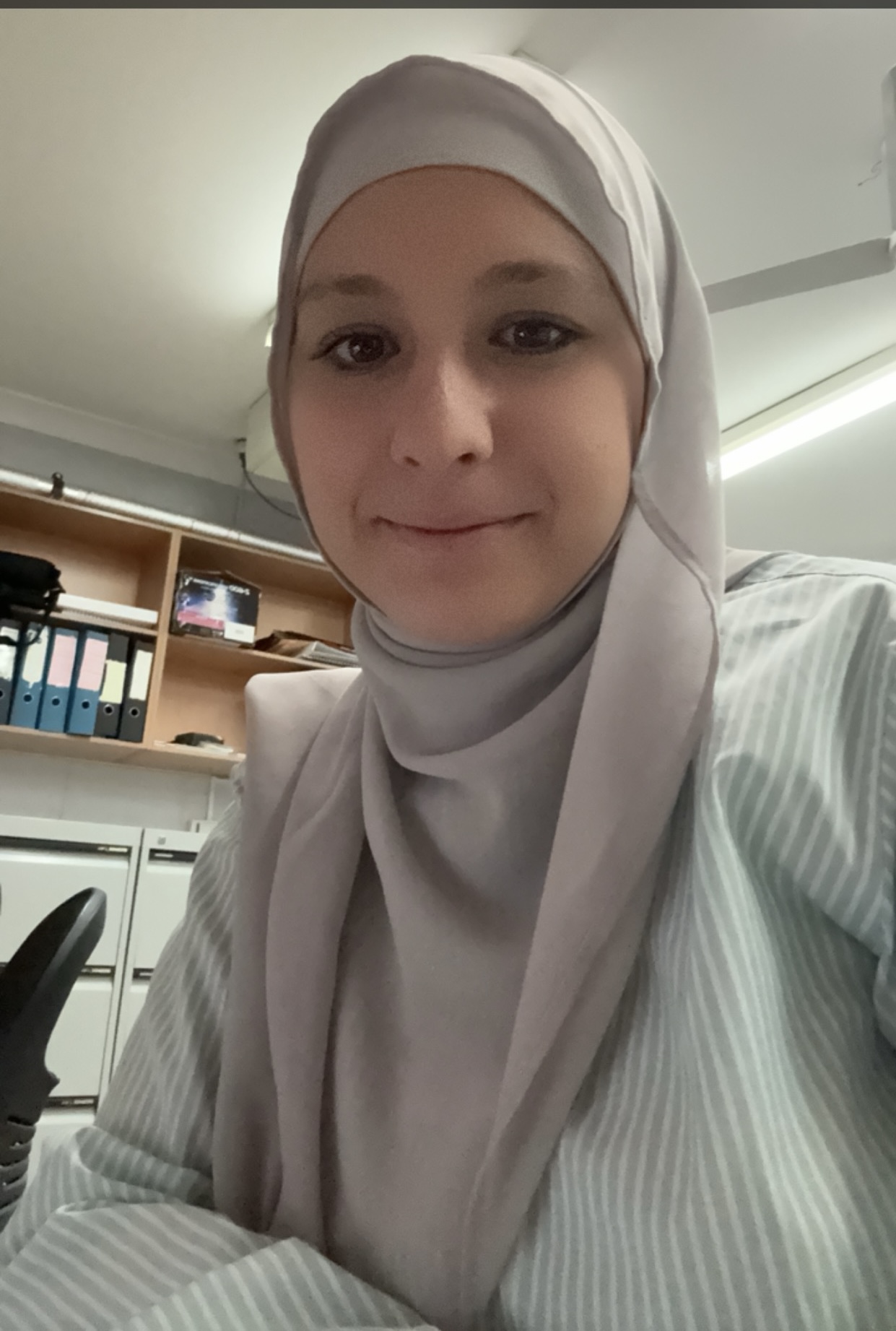 Thamina Kassar
Thamina KassarThamina Kassar is a secondary Science educator and a Wellbeing coordinator who strives to ensure that her learners are supported in all domains. With more than ten years of teaching across all stages of the secondary Science, she is passionate about working collegially in teams with a focus on theory to practice. Thamina is currently the Wellbeing Coordinator for the Malek Fahd Islamic Schools (MFIS), Greenacre Campus. Social-emotional wellbeing within an Islamic Worldview is something she is passionate about including the impact it has on learners’ education. Thamina is dedicated to promoting a holistic approach (mind-body-soul) to behaviour education with a strong belief in the long-lasting impact of nurturing wellbeing. Thamina strives to empower students, guide teachers, and foster positive connections, ultimately contributing to the overall wellbeing and success of the school community. Thamina holds a Masters in Teaching and has completed a post-graduate course in Islamic Education at the University of South Australia.
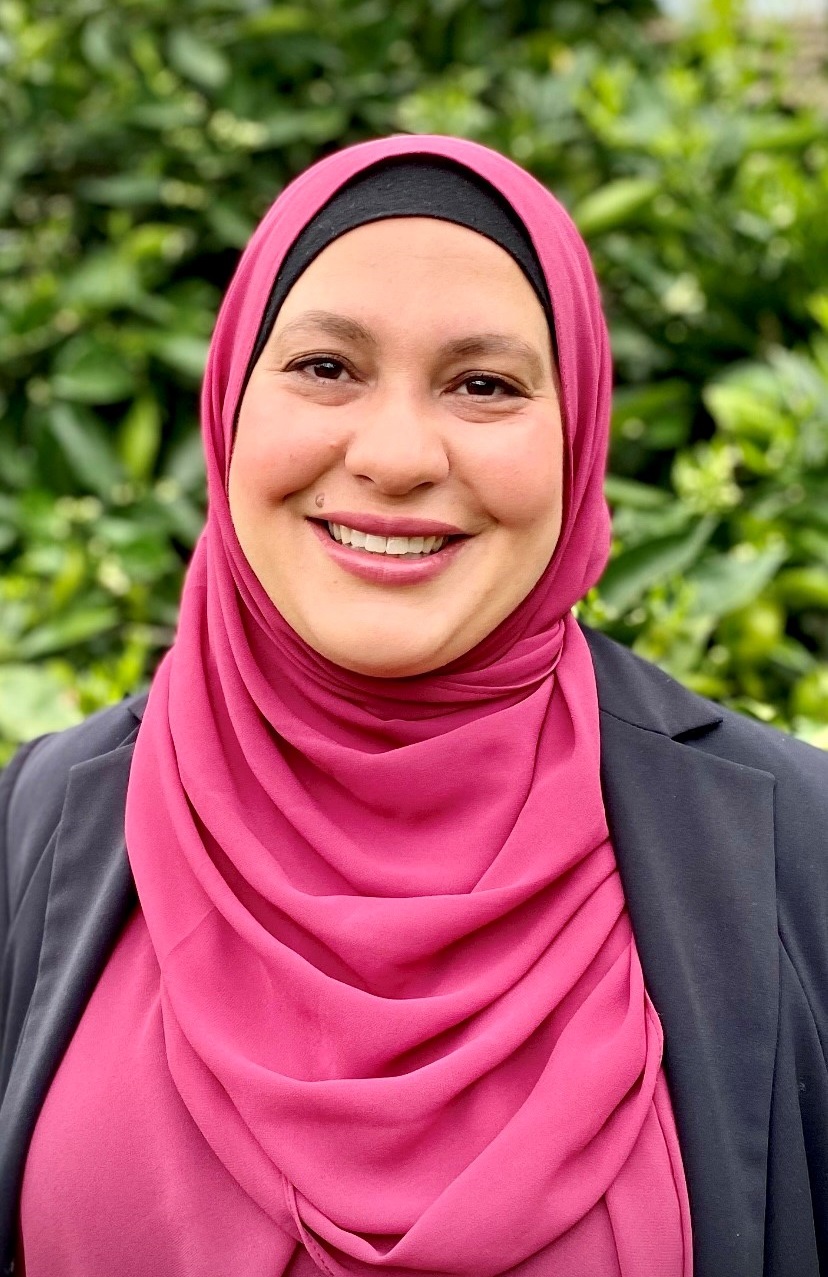 Roset Khair
Roset KhairRoset Khair is the Head of Teaching and Learning at Unity Grammar and brings over 13 years of experience in education, following a career in the legal and corporate banking sectors. With a deep commitment to contextualised and authentic learning, Roset is driven by a passion for empowering educators and students. She supports the development of engaging, skills-based learning that is relevant to real-life applications and fosters meaningful educational outcomes.
In addition to her leadership role, Roset holds key positions in various professional associations, where she actively represents and advocates for educators across New South Wales and nationally. She is a regular presenter and facilitator of professional learning, particularly in the area of financial literacy education. Roset is also a published researcher in financial literacy and regularly delivers community education programs, professional development workshops, and conference presentations on the topic. She also serves as a consultant and advisor to prominent organisations addressing financial literacy needs including the Australian Securities Exchange (ASX), Financial Basics Foundation, and the Ecstra Foundation.
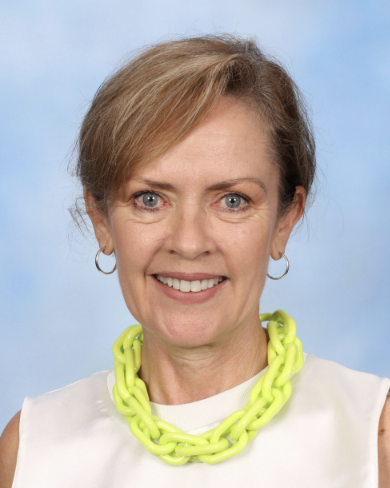 Jo Kirby
Jo KirbyJo brings over 20 years of educational experience across government, independent, and international settings to her role at Chevalier College in Burradoo, NSW. Armed with post-grad qualifications in gifted education and a Master of Educational Leadership, she leads the development of bold new directions in teaching, learning, and assessment.
In this role, which she began in Term 3, 2023, Jo designs innovative frameworks that move beyond traditional academic metrics, cultivating ‘complex competencies’ such as learner agency, communication, ethical action, and critical thinking, to name a few. She partners closely with the Assistant Principal – Learning & Teaching and curriculum leaders to embed these approaches in practice, drawing on action research, digital technologies, and international best practice. Jo is also instrumental in new initiatives like Flexible Mondays (focused on executive functioning and flipped learning), and the design and facilitation of self-regulation of learning credentials, guiding senior students through a journey of discovery of self as learners. Highly respected as a strategic thinker, researcher, and growth oriented leader, Jo is driven by her passion for preparing students and educators for a rapidly changing world through innovation, detain formed practice, and purposeful pedagogy.
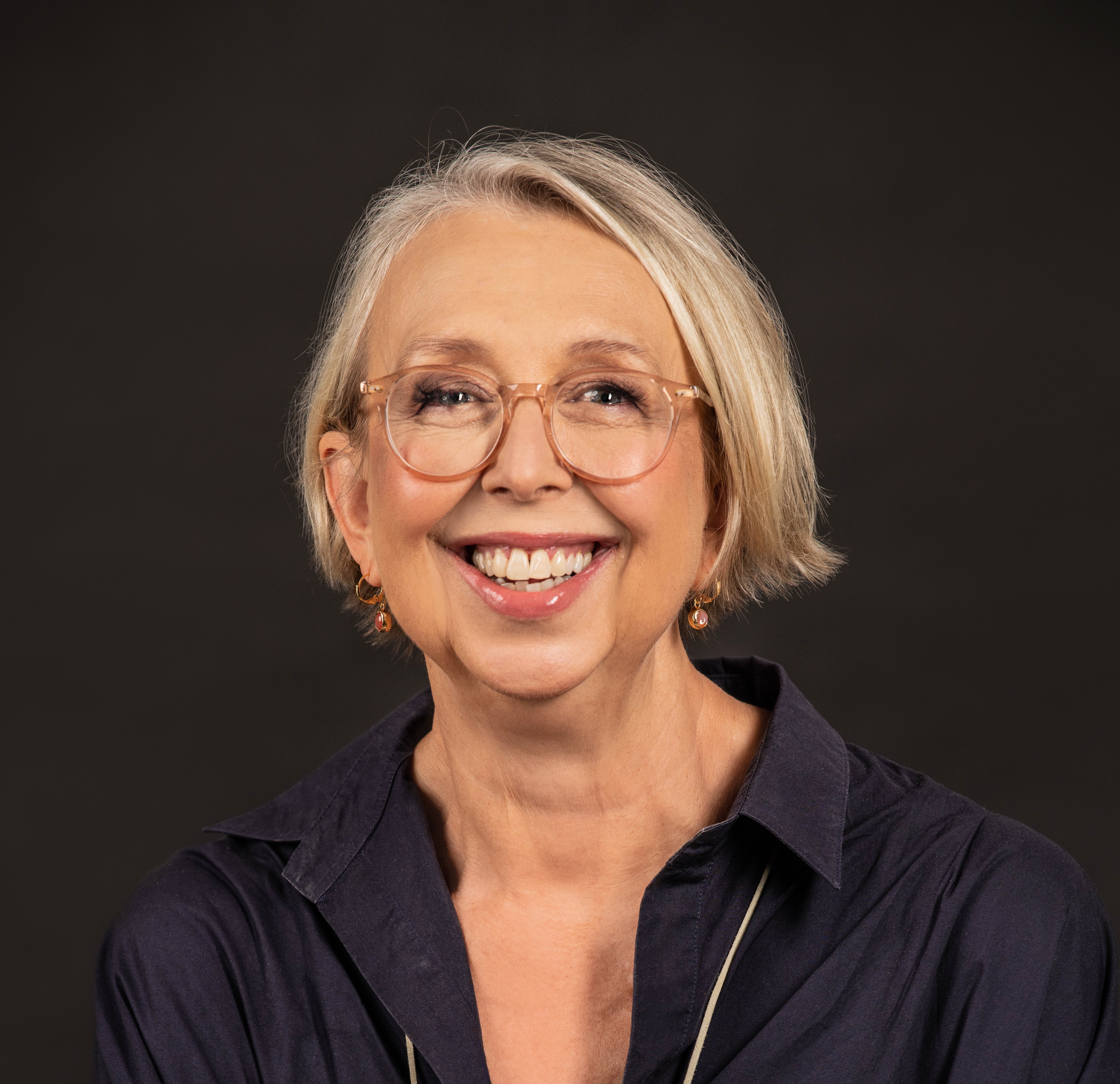 Dr Anne Knock
Dr Anne KnockDr Anne Knock is a thought-leader, facilitator and an educator at heart. She partners with schools and system leaders to lead purposeful, future-focused change. Her PhD from The University of Melbourne (2022) investigated how school leaders can create the conditions for transformational practice by intentionally designing culture, strategy, and space. Her work supports educational communities to move beyond surface-level innovation toward change that is deeply grounded in values, responsive to complexity, and driven by a clear sense of purpose.
With a background in school leadership and a career engaged in faith-based education contexts in Australia, Anne brings deep expertise in strategic planning, learning space design, and organisational culture. She has worked with schools, networks, and education departments across Australia, New Zealand, Southeast Asia, Canada, and Europe, supporting leaders to rethink learning, leadership, and assessment in response to shifting societal needs and technological disruption.
Drawing on complexity theory, regenerative practice, systems thinking, and distributed cognition, Anne equips leaders with the tools, language, and clarity needed to navigate uncertainty and lead change. Her work resonates with educators seeking to honour their foundations, while envisioning bold, hopeful futures for their communities.
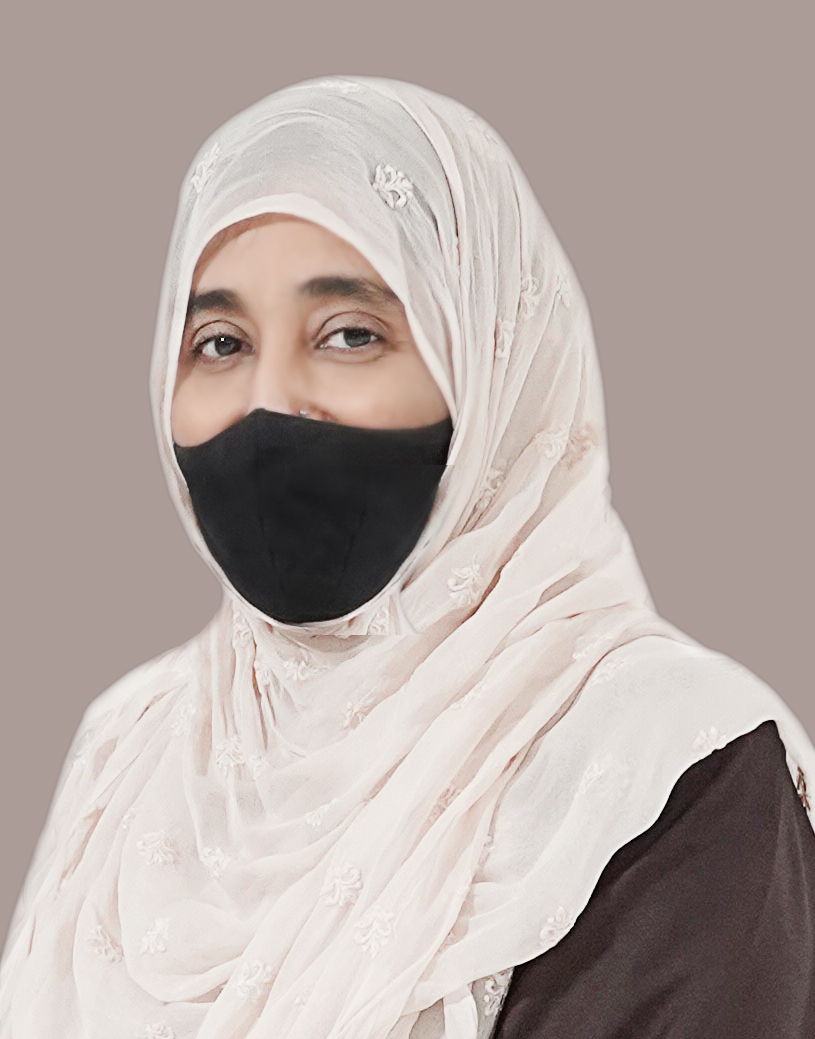 Sadaf Lean
Sadaf LeanSadaf Shahid is a seasoned educationist, certified ISO 21001 Lead Auditor, and internationally respected consultant with more than two decades of diverse experience in the fields of educational quality assurance, curriculum innovation, and institutional leadership. She began her professional journey in 1999 as a trainer in ISO 14001 implementation and has since contributed significantly to a range of globally recognized standards, including ISO 9001, ISO 26000, and SA 8000.
She holds a Master’s degree in Total Quality Management from the University of the Punjab and is also a certified Lead Auditor accredited by the Chartered Quality Institute (CQI). In 2003, she was appointed as a Master Trainer for the Early Childhood Education initiative under the Government of Sindh. Her global experience expanded through her work with the UAE Ministry of Education and KHDA from 2012–2013, along with conducting high-impact trainings across Sri Lanka, South Africa, Japan, China, and the UAE. In 2017, she served as Executive Director of IMWU and represented Pakistan at the 36th session of the UN Human Rights Council in Geneva. Mrs. Shahid passionately mentors adults through programs rooted in Islamic philosophy, aiming to develop ethical, competitive individuals. She is a licensed implementer of “The Way to Happiness” program, promoting its 21 Precepts-Based Character Curriculum across Pakistan. She was recently honored by J.I. Youth – Islamabad Chapter as a “Frontline Pioneer Youth” in recognition of her leadership, vision, and unwavering service to education and community advancement.
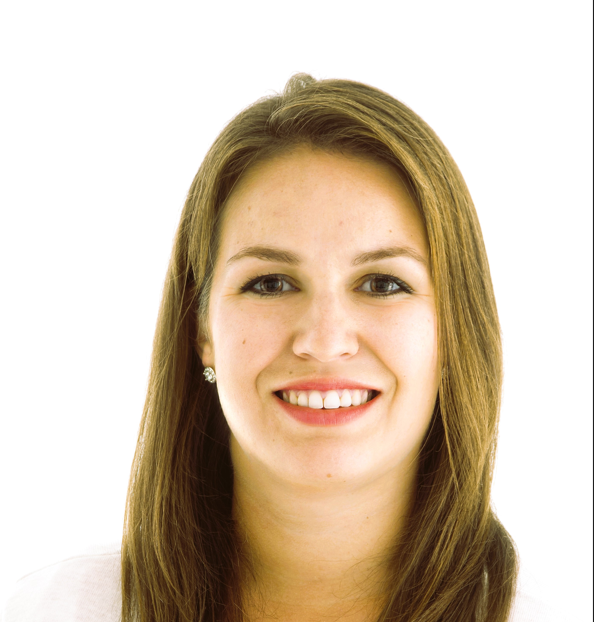 Kate McGrath
Kate McGrath
Kate McGrath brings over 20 years of experience alongside the education sector across Oceania and the Middle East, having worked with leading education providers in cross-sector collaboration with schools to improve student outcomes.
With a background rooted in a family of educators and a personal passion for learning, Kate has consistently focused on supporting school leaders and teachers to unlock student potential, both academically and beyond. She holds a bachelor’s degree from Union College, NY, and is dedicated to helping educators take a whole-child approach to teaching, learning, and assessment. At this conference, Kate draws GL Education and Renaissance’s work with schools across the Middle East and Australia and New Zealand to explore how assessment can align more deeply with the values and mission of Islamic education.
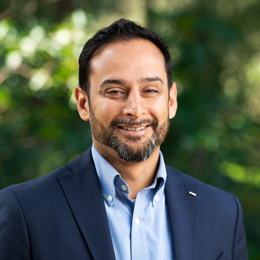 Assoc. Prof. Nadeem Memon
Assoc. Prof. Nadeem MemonDr. Nadeem Memon is an Associate Professor at the Centre for Islamic Thought and Education (CITE) at the University of South Australia (UniSA). At CITE/UniSA, Nadeem serves as a Curriculum Advisor for the Graduate Certificate in Education (Islamic Education), the first online graduate education program for educators in Islamic schools globally. His research focuses on teacher education with particular emphasis on Islamic Pedagogy, comparative faith-based schooling, philosophy of religious education, and culturally responsive pedagogy. In his research program, Nadeem is a Chief Investigator on an Australian Research Council (ARC) Discovery Grant (2022-2025) on Culturally Responsive Schooling. He also leads a monthly reading group on Faith-Based Pedagogies with educators and academics from various religious traditions and religious orientations. In support of Islamic schooling, Nadeem serves the Board Chair for the Islamic Schools League of America (ISLA), member of Yaqeen’s Institute’s Curriculum Advisory Board; member of the Global Association of Islamic School’s conference committee; member of University of Cambridge’s Cambridge Dialogues on Rethinking Islamic Education and a consultant on Qatar Foundation’s Usul Education Framework.
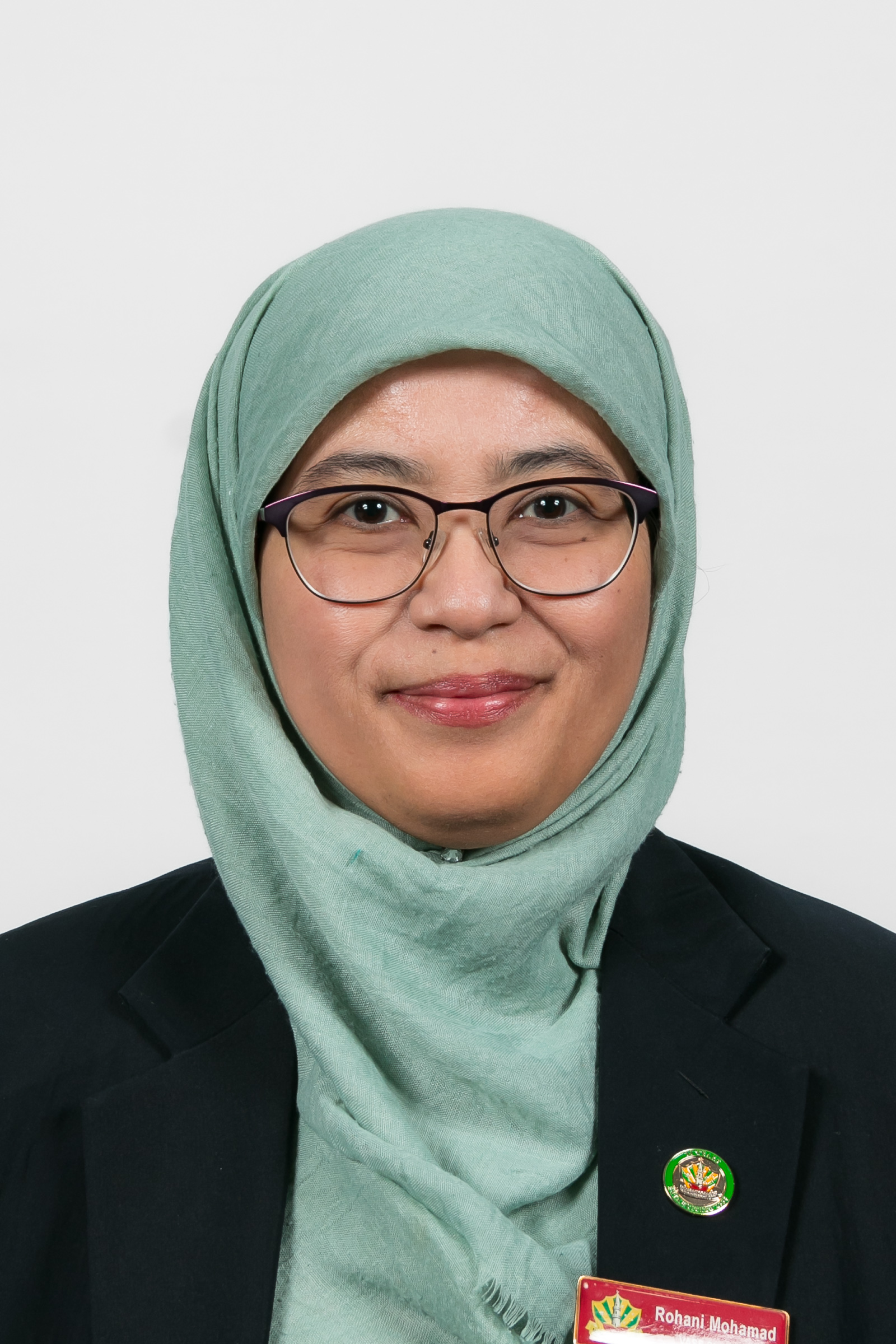 Dr. Rohani Mohamad
Dr. Rohani MohamadRohani Mohamad is a senior mathematics teacher at Minaret College who has taught senior and middle school mathematics. Before teaching in a Victorian school, she taught in Ontario, Canada, and Malaysia. Growing up in Malaysia, as a student, Rohani experienced exam-oriented assessments throughout her schooling years. As a teacher, while teaching the Ontario curriculum, she noticed how a non-exam assessment system could work too. Later, she became aware of the Victorian school assessment model, which combines school-based internal assessments and centralized external examinations. This generated her interest in investigating the Victorian teachers’ assessment practices. Within the context of secondary mathematics, Rohani did her PhD study at the University of Melbourne from 2007 to 2013. She has four sons and one lovely husband, and they love to travel.
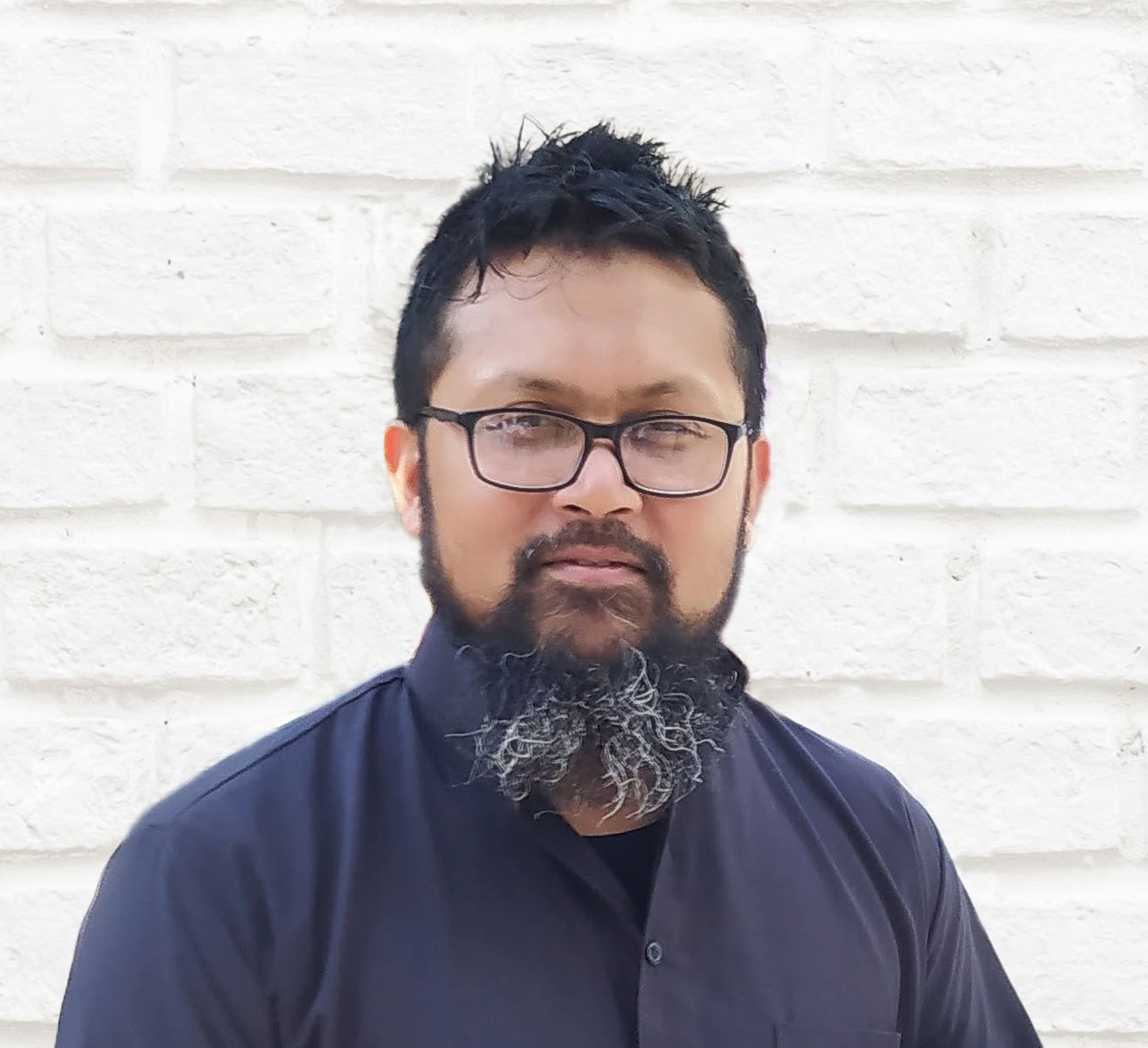 Muhammad Nabil
Muhammad NabilMuhammad Nabil researches British Muslim Charities at SOAS, University of London; and works as a Research Fellow with the University of Birmingham. Earlier, Nabil studied languages, linguistics and media communication, most recently as an Erasmus Mundus scholar. He recently worked with the Muslim Council of Britain (MCB), SOAS and the Islamic Development Bank (IsDB), following over a decade with institutions known for strong public service and humanitarian ethos. He also interned at a UK academic publisher, has been a visiting fellow at Imperial College London, and volunteered for over eleven years with social, community organisations and Islamic schools. Some of his previous and current research was accepted for publication in the Journal of British Islamic Medical Association (BIMA), SOAS Journal of Postgraduate Research, and for presentation in Westminster, Coventry, Warwick, Cambridge, Cardiff, and Hamburg (Germany). His academic interests include charitable, philanthropic and humanitarian work, language education and media representation of ethnic cultures.
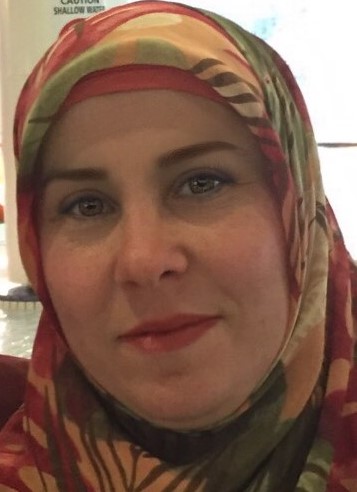 Assoc. Prof. Fida Sanjakdar, Alasdair Roy, Dr. Helen Schiele
Assoc. Prof. Fida Sanjakdar, Alasdair Roy, Dr. Helen SchieleFida Sanjakdar: Associate Professor in the School of Education, Culture and Society, in the Faculty of Education at Monash University. Her research expertise lies in the areas of critical sexuality education, the intersections between religion, culture and sexuality education, Islamic education and Islamic schooling, teaching controversial issues and real-world ethics.
 Alasdair Roy: A leading child rights specialists, with over 30 years’ experience promoting and protecting the safety and wellbeing of children. Between 2008 and 2016, Alasdair was the Children and Young People Commissioner in the Australian Capital Territory, and between 1997 and 2008, was the Deputy Community Advocate for Children and Young People in the ACT. Alasdair has a Master’s in counselling psychology, and postgraduate qualifications in Islamic psychology
Alasdair Roy: A leading child rights specialists, with over 30 years’ experience promoting and protecting the safety and wellbeing of children. Between 2008 and 2016, Alasdair was the Children and Young People Commissioner in the Australian Capital Territory, and between 1997 and 2008, was the Deputy Community Advocate for Children and Young People in the ACT. Alasdair has a Master’s in counselling psychology, and postgraduate qualifications in Islamic psychology
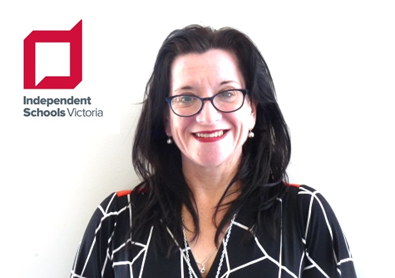 Helen Schiele: Principal Consultant at Independent Schools Victoria. Helen is involved in several departmental committees, including the ministerial taskforce for the ‘Best Start, Best Life’ initiative, and serves as a representative and adviser on the ACARA and VCAA curriculum committees, championing curriculum development. She holds a Master’s in education and recently completed her Doctorate in Faith-based Education.
Helen Schiele: Principal Consultant at Independent Schools Victoria. Helen is involved in several departmental committees, including the ministerial taskforce for the ‘Best Start, Best Life’ initiative, and serves as a representative and adviser on the ACARA and VCAA curriculum committees, championing curriculum development. She holds a Master’s in education and recently completed her Doctorate in Faith-based Education.
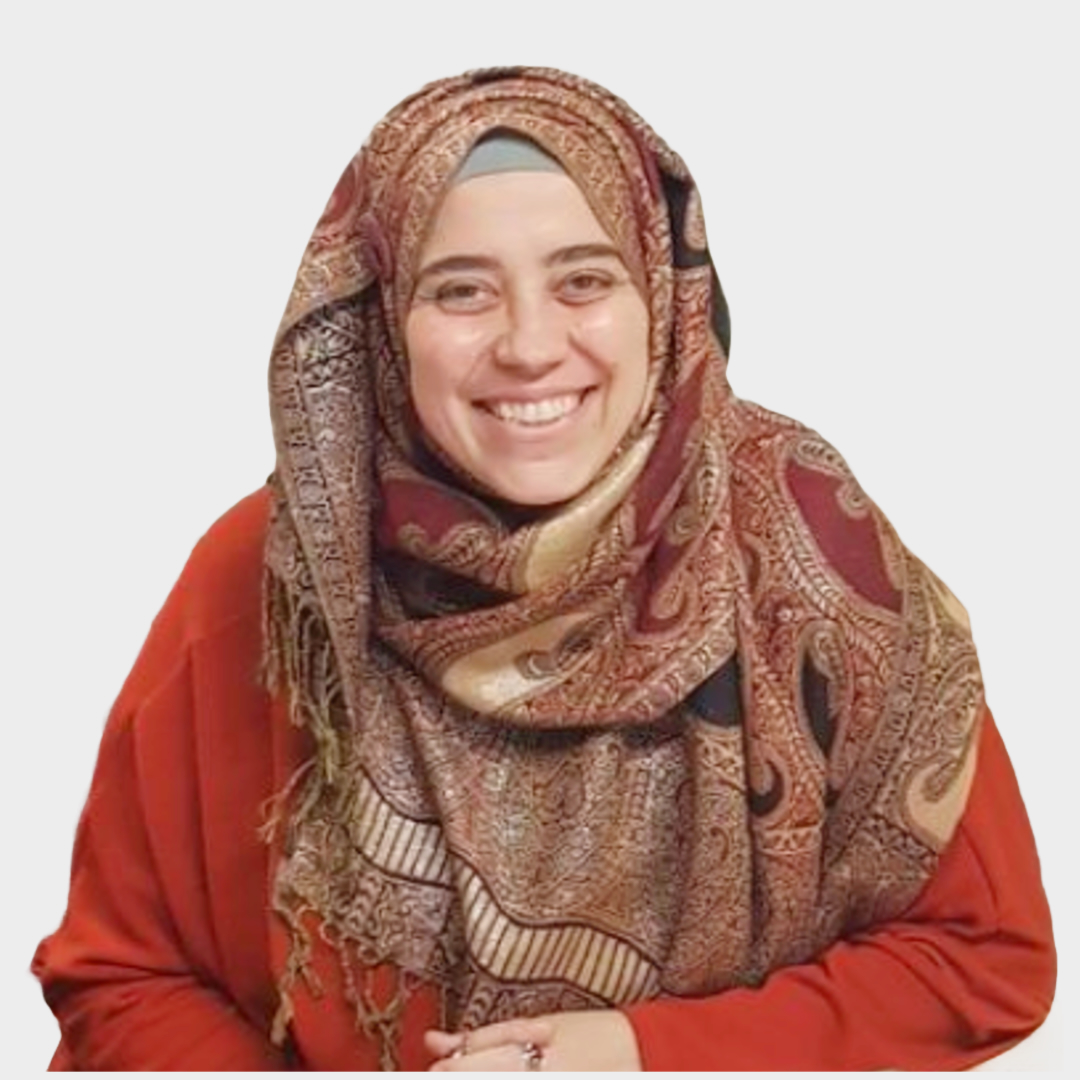 Dr. Nadia Selim
Dr. Nadia SelimDr Nadia Selim is an Associate Lecturer in the Discipline of Arabic Language and Cultures at the University of Sydney. Her primary research explores Arabic language learning and teaching. She focuses on understanding Arabic learners’ motivation, experiences, and engagement. She examines the Islamic schooling sector and explores the history of Arabic language education between the 8th and 13th centuries CE (the Islamic Golden Age). Nadia’s academic contributions are reflected in both publications and presentations at national and international conferences. Her two most recent publications are “Reimagining Arabic in Islamic Schools” (Oxford Research Encyclopedia of Education) and “Arabic on the Silk Roads: Contact, Exchanges, and Civilization” (UNESCO).
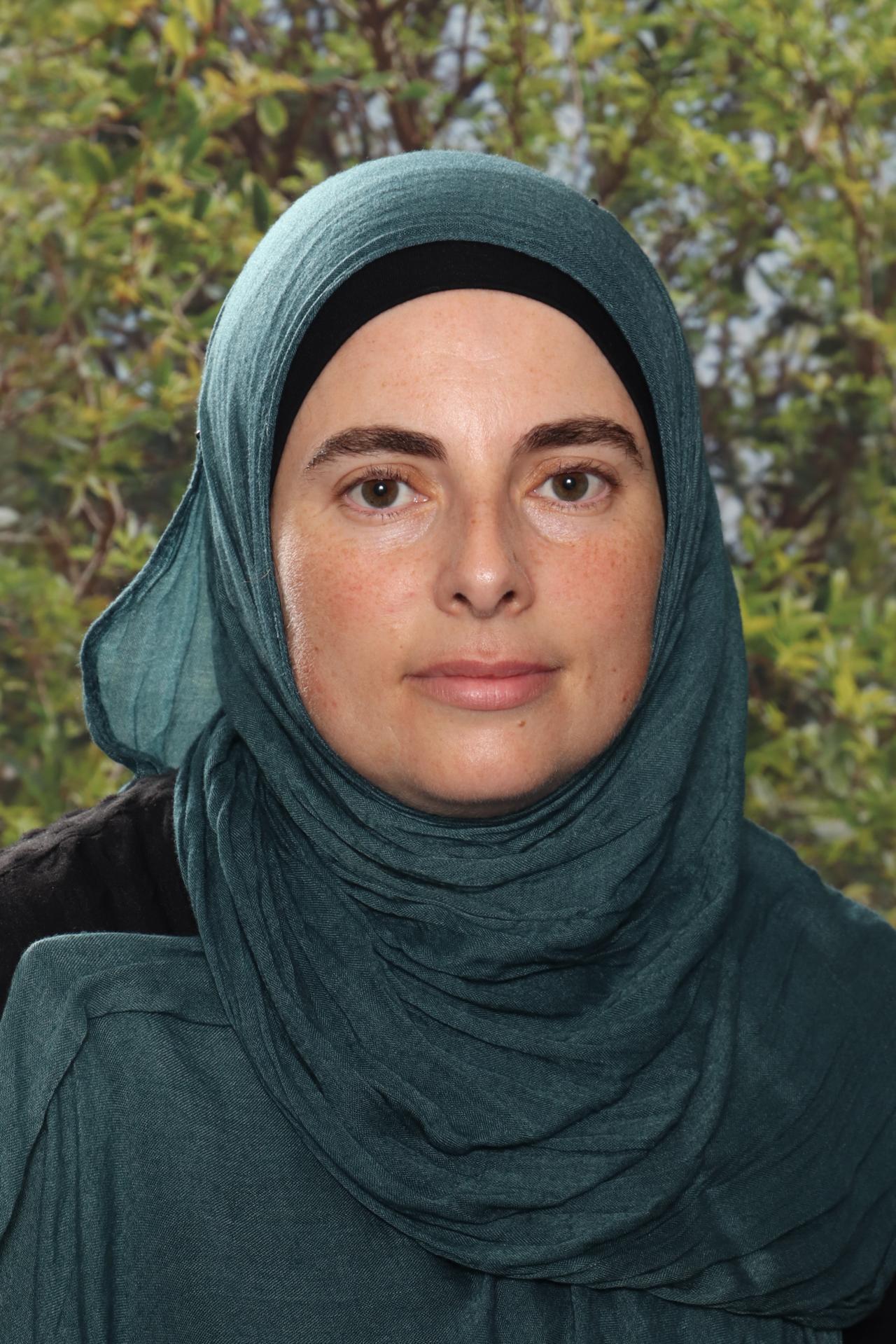 Mirna Hadid & Dr. Ayda Succarie
Mirna Hadid & Dr. Ayda Succarie Mirna has over 20 years of diverse teaching experience, spanning both public and private sectors, as well as international classrooms. She currently serves as the Islamic Integration Officer and a classroom teacher at Irfan College. Mirna is a dedicated and passionate educator committed to nurturing the whole child, empowering students to express themselves authentically and embracing the differences of others. Holding a Master of Teaching (Primary) and a Graduate Certificate in Education (Islamic Education), she brings a unique perspective to the classroom, combining educational expertise with a strong understanding of Islamic pedagogy. She has programmed and facilitated many project-based learning initiatives with her students throughout her teaching journey. Since 2020, she has developed and facilitated consistent faith-based self-development programs for young people. Mirna’s teaching philosophy centres on guiding students to know and understand God. She believes this foundational learning helps students know themselves and their purpose, cultivating deep self-awareness and spiritual growth.
Dr Ayda Succarie is a human resources and management lecturer, academic program advisor and researcher at the School of Business at WSU. Her expertise is in Governance, social entrepreneurship, identity studies, organisational learning and development, organisational behaviour, management, and education systems. Ayda’s research portfolio includes faith-based governance frameworks, school climate and community wellbeing, Islamic teacher education, professional learning, professional identity, and holistic professionalism. Her research extends to student retention in higher education and social entrepreneurship teaching and practice. Externally, Ayda advises Islamic schools and community organisations on governance and organisational development and is passionate about facilitating change and innovation for societal impact. Ayda’s teaching philosophy centres around “holistic learning” by creating a positive teaching and learning space that harnesses rapport between the teacher and learner, where both parties feel valued and respected, learners are challenged to achieve expectations, and teachers are appreciated for their commitment to education.
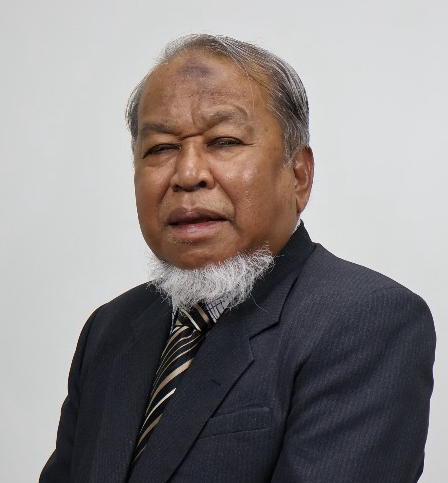 Noor Azlan Ahmad Zanzali et al
Noor Azlan Ahmad Zanzali et alProf. Dr. Noor Azlan Ahmad Zanzali began his career as a mathematics teacher in 1975 and later served as a professor at the Faculty of Education, Universiti Teknologi Malaysia (UTM) until 2015. With extensive experience in curriculum and instruction—particularly mathematics education—he contributed significantly to the development of Malaysia’s national mathematics and additional mathematics curriculum, especially under the KBSM framework, from 1988 to 2015. He has presented numerous papers at national and international levels and held several key administrative positions at UTM, including Head of Department, Head of Residential Colleges, and Director of the Alumni Relations Unit. Beyond academia, Prof. Noor Azlan played a prominent role in the National Professors Council and currently chairs two major international projects: the International Quality Range Assessment (IQRA) for Islamic Education and the Quality Standards for Islamic Education under the International Committee of Educational Excellence (ICEE). He is also Chairman of the International Center for Educational Excellence (ICEE). His engagement with Islamic education began in the early 1980s through leadership roles in school governance. Today, he serves as Head of Research Development at IKRAM-Musleh and Dean of the Faculty of Education, Social Science and Islamic Studies (FESSIS) at Universiti Muhammadiyah Malaysia.
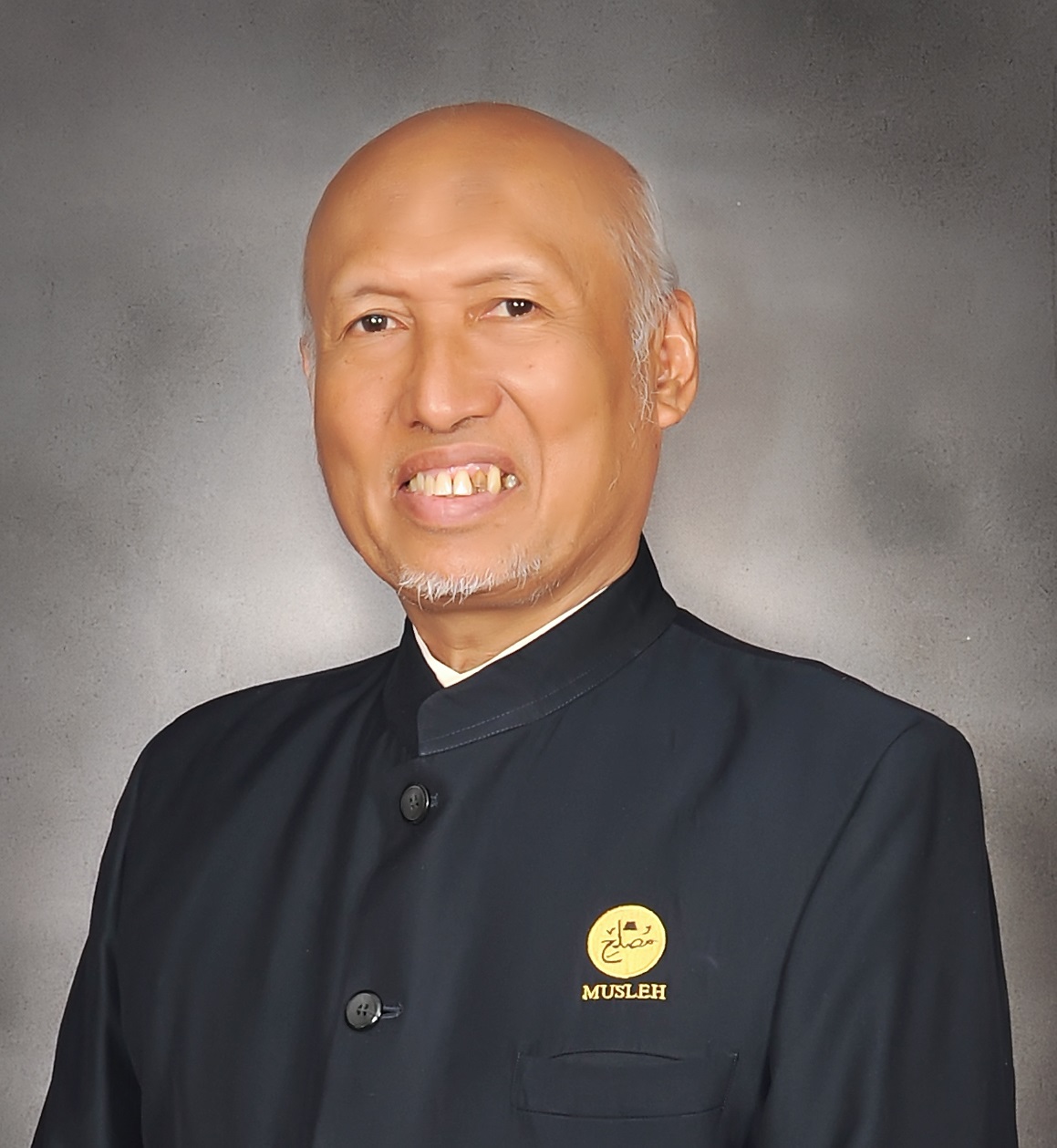 Megat Mohamed Amin Megat Mohamed Nor holds an LLB in Islamic Law and Jurisprudence but pursued a career in Islamic education. He began as a teacher at a private Islamic primary school focused on adab, akhlak, and syakhsiyah Islamiah, later becoming its Headmaster, then Principal of a private Islamic secondary school, and Director of a network of Islamic institutions. He holds diplomas in Management (Malaysian Institute of Management) and Dakwah & Education (Akademi Islah Malaysia). Currently, he serves as Secretary to the Board of Trustees of Musleh Integrated Education Berhad (MUSLEH), overseeing 49 Islamic preschools and 58 primary and secondary schools under Pertubuhan IKRAM Malaysia. He has extensive experience in leadership, administration, and the development of Islamic educational systems, and serves as a consultant and trainer for educators and community leaders. He is a key figure in managing Manhaj Tarbiah MUSLEH, a holistic Islamic character development programme. Actively involved in national and international Islamic education advocacy, he has contributed to books, media, and major forums. He is Secretary of Gabungan Persatuan Pendidikan Islam Malaysia, Secretary General of the International Centre for Educational Excellence (ICEE), and Secretary of Inisiatif Pengislahan Pendidikan Nasional (IPPN). He also serves on MOE’s Students Becomingness Assessment project and the Council for Islamic Education Assessment.
Megat Mohamed Amin Megat Mohamed Nor holds an LLB in Islamic Law and Jurisprudence but pursued a career in Islamic education. He began as a teacher at a private Islamic primary school focused on adab, akhlak, and syakhsiyah Islamiah, later becoming its Headmaster, then Principal of a private Islamic secondary school, and Director of a network of Islamic institutions. He holds diplomas in Management (Malaysian Institute of Management) and Dakwah & Education (Akademi Islah Malaysia). Currently, he serves as Secretary to the Board of Trustees of Musleh Integrated Education Berhad (MUSLEH), overseeing 49 Islamic preschools and 58 primary and secondary schools under Pertubuhan IKRAM Malaysia. He has extensive experience in leadership, administration, and the development of Islamic educational systems, and serves as a consultant and trainer for educators and community leaders. He is a key figure in managing Manhaj Tarbiah MUSLEH, a holistic Islamic character development programme. Actively involved in national and international Islamic education advocacy, he has contributed to books, media, and major forums. He is Secretary of Gabungan Persatuan Pendidikan Islam Malaysia, Secretary General of the International Centre for Educational Excellence (ICEE), and Secretary of Inisiatif Pengislahan Pendidikan Nasional (IPPN). He also serves on MOE’s Students Becomingness Assessment project and the Council for Islamic Education Assessment.
Dr. Khodori Ahmad earned his PhD in Educational Testing and Measurement from the University of Sussex and has over 40 years of experience in the field. He began his career as a teacher and trainer before joining the Malaysian Examinations Syndicate (MES) in 1977, where he held key roles including Test Developer, Chief Assistant Director, Head of Sector, and retired as Deputy Director (Production). His leadership significantly shaped Malaysia’s national assessment landscape. He contributed to the design of UPSR, PTS, criterion-based and competency assessments, modular certification, and pioneered initiatives such as Memasyarakatkan Pentaksiran, Humanising Assessment, the 3-P Model for school-based assessment quality assurance, and innovations like the 9-point system, 50G, 5-3-2 model, and the National Education Assessment System (NEAS). He also introduced key assessment frameworks including PASSaK, PADI 5, and SERANGKAI. Currently, Dr. Khodori is active as a consultant with higher education institutions and organizations. With Felda’s Transformation Department, he developed Felda Transformational Learning (FTL) for underachievers. He now leads the PASM project for students with learning disabilities and the international IQRA initiative for assessing “becomingness.” He serves as a board member of the Majlis Pentaksiran Pendidikan Islam and is Chairman of Gabungan Persatuan Pendidikan Islam Malaysia (GaPIM). His passion lies in integrating holistic and meaningful assessment into education.
Seats are limited and we need to ensure attendees are not double booking themselves in the same timeslot. Please register for only 1 session in each time slot, example
Day 1
10:40 to 11:40 - Room X only.
14:00 to 15:00 - Room X only
Day 2
10:30 - 11:30 - Room X only
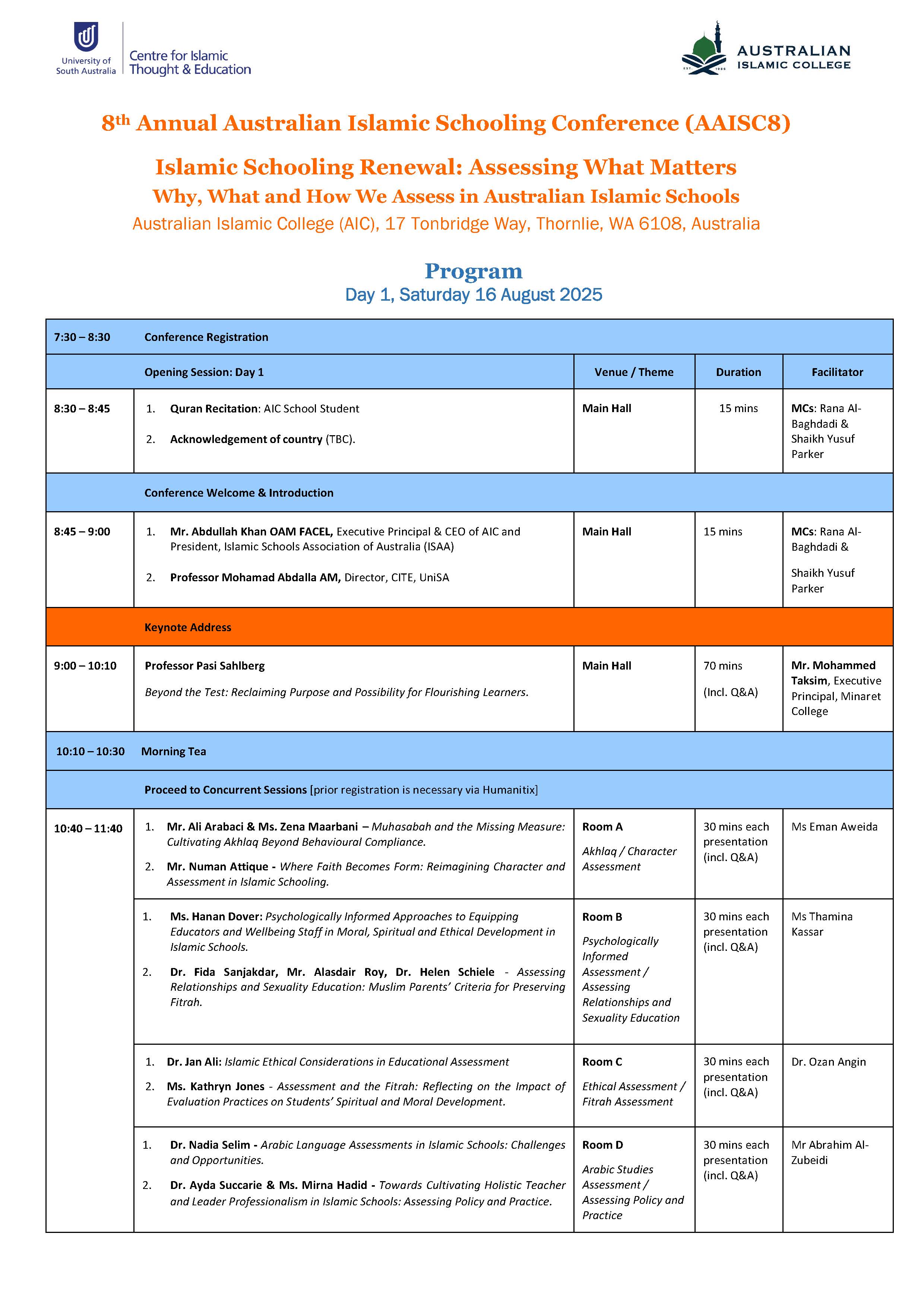
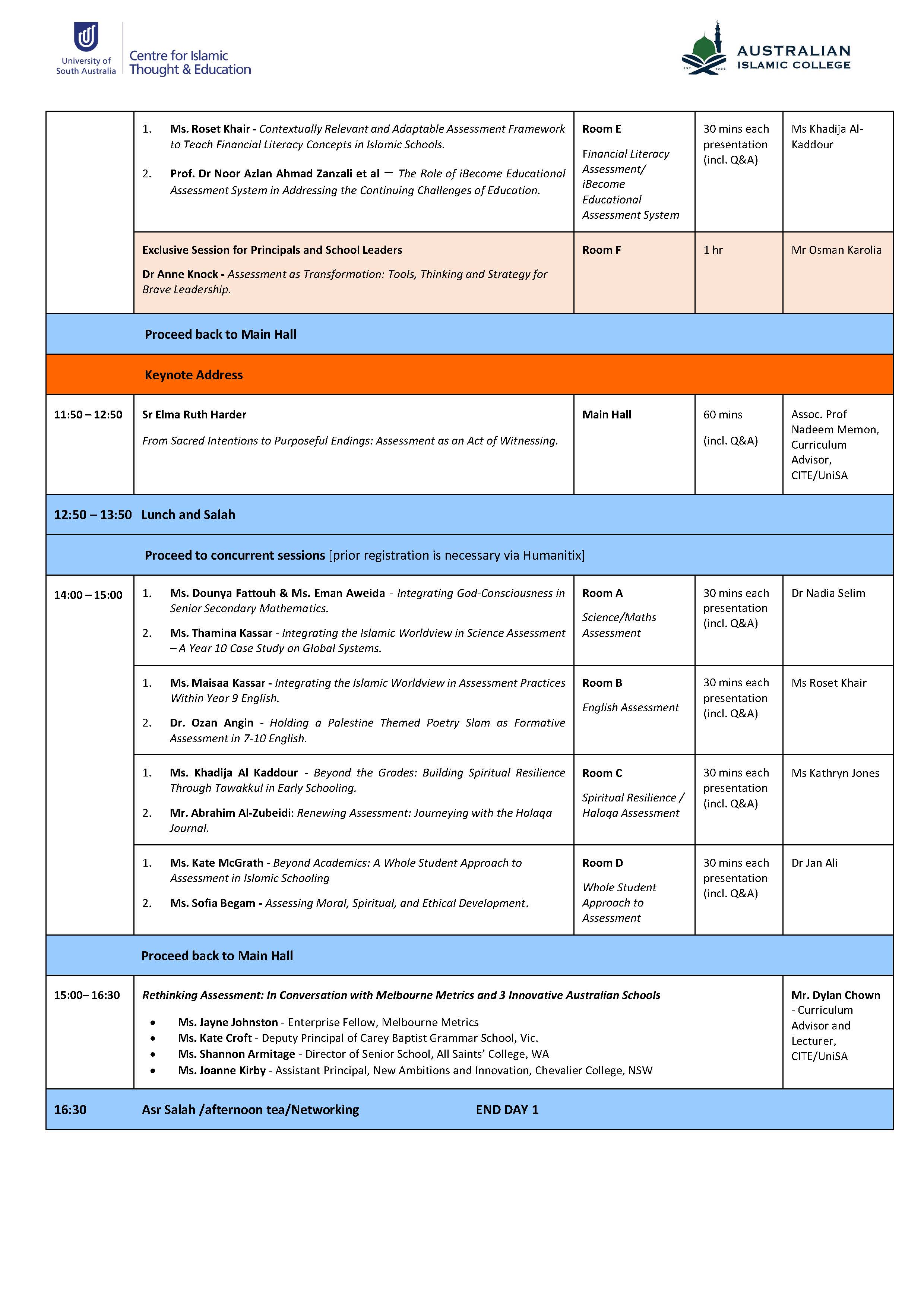
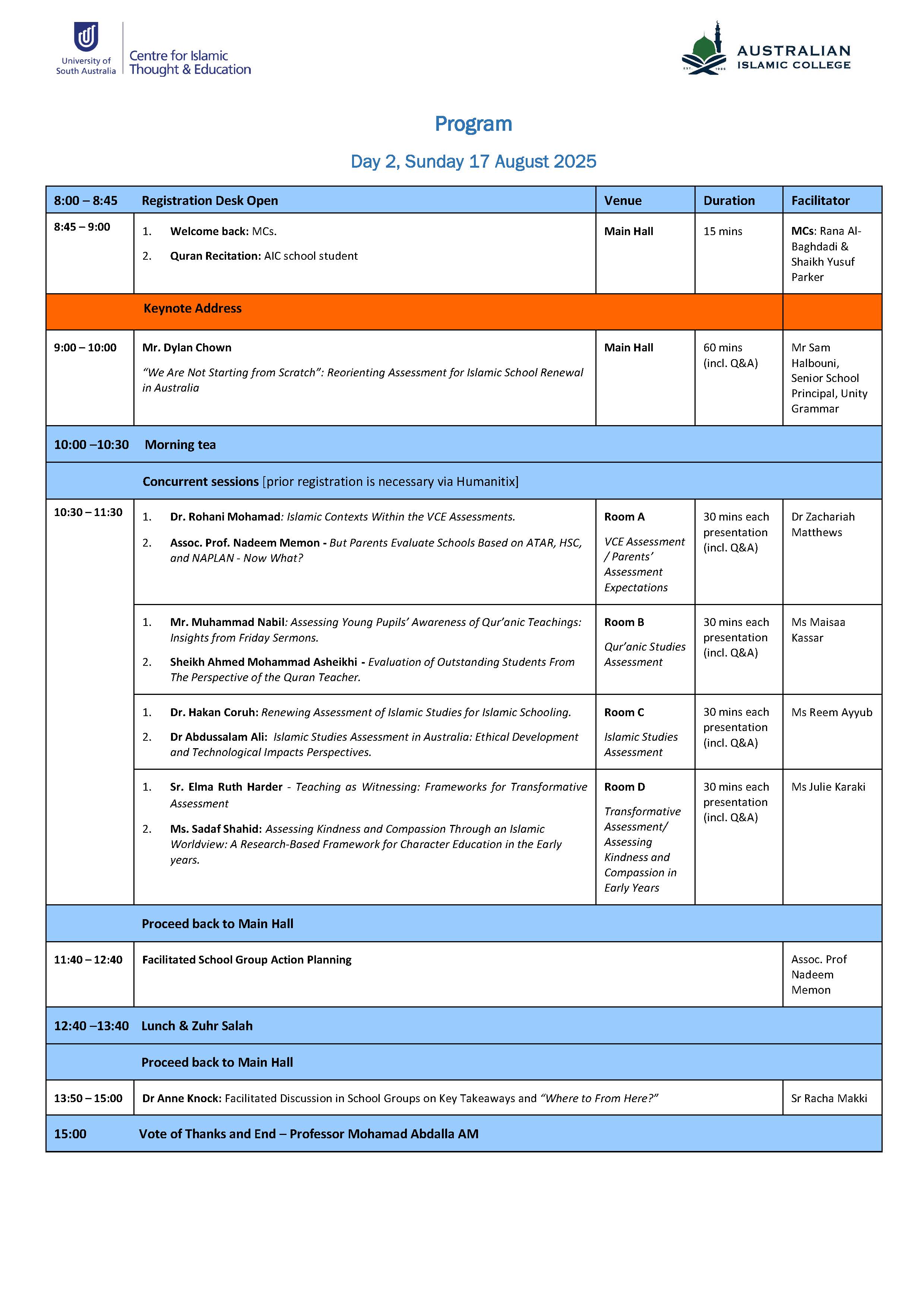
Please Register via HUMANITIX
$250 per person x 2 days (GST exclusive)
$150 Fulltime student x 2 days (GST exclusive and must provide Student ID)
$100 Livestream - All sessions in Main Hall will be livestreamed. Few of the key concurrent sessions will also be recorded and made available to registered attendees only by 31 August 2025. Zoom link will be sent on 14 August 2025.
Time zones for our international participants Perth time 8:30am
Invoice - to receive an invoice please contact cite@unisa.edu.au
Please use the link below in order to get the discounted rates. The other option is you can enter the code NPLEVENT under ‘Special Rates’ Link to book your accommodation at Novotel Perth Langley
When making the booking, please ensure you scroll down to the section under Exclusive 20% Savings and select the Book Now button in this section. The 20% discount link is only available for stays between 15th August – 18th August 2025 (inclusive).
Offering a discounted rate of $250 per night - stay and rate validity is : 14/08/2025 to 19/08/2025, Rate Access Code : UniSA
|
Professor Mohamad Abdalla AM |
Dr Nadeem Memon |
Mr Dylan Chown |
Dr Jan Ali, Western Sydney University
Dr Fida Sanjakdar, Monash University
Dr Ibrahima Diallo, University of South Australia
Mr. Abdullah Khan, President Islamic Schooling Association of Australia
Dr Nada Ghamraoui, NNG Educational Consultancy
Ms. Nuraan Samodien, Minarah College, NSW
Dr. Nadia Selim, University of Sydney
CITE invites abstracts of original and critical research papers, or classroom-based examples addressing the broad theme of Islamic Schooling Renewal: A Focus on Assessment – Why, What and How We Assess in Australian Islamic Schools? Academics, educators, school leaders and school cohorts are welcome to submit.
CITE invites:
a) short descriptions of proposed interactive educator workshops that showcase school and/or classroom-based examples of Islamic Schooling Renewal: A focus on assessment programs in practice.
b) abstracts for critical research papers on conceptual or empirical research related to assessment in Islamic schools.
Topics of interest for abstract submission include, but are not limited to:
1. Islamic Worldview in relation to assessment
2. Assessing moral, spiritual, and ethical development
3. Early years assessment
4. Opportunities within Australian assessment and evaluation policy and practice
5. Research and practice related to alternative assessment and evaluation
6. Assessment and evaluation in Islamic Studies
7. Assessment and evaluation in Arabic Studies
8. Key debates on standardisation of assessment and evaluation
9. Student, parents, community perspectives, expectations, and aspirations related to assessment and evaluation
10. Rethinking school evaluations and teacher appraisals in relation to the
Islamic Worldview
These themes provide a broad spectrum of topics for abstract submissions that can contribute to the conference's vibrant and diverse discussions on assessment, why, what and how we assess in Australian Islamic schools.
Abstracts of no more than 300 words must be submitted together with an author(s) or school’s biography by 15 May 2025 to cite@unisa.edu.au
Abstracts should be submitted to cite@unisa.edu.au in Word format and written in the following order:
1. Author(s) full name,
2. Affiliation,
3. Email address and contact number,
4. Title of abstract,
5. Body of abstract (max 300 words),
6. Author’s biography (150-200 words)
Email subject should be titled: AAISC8 Abstract Submission.
Use plain text (Times New Roman, 12point, double spaced) and abstain from using footnotes and any special formatting, characters or emphasis (such as bold, italics or underline).
We will acknowledge receipt and respond to all abstracts submitted.